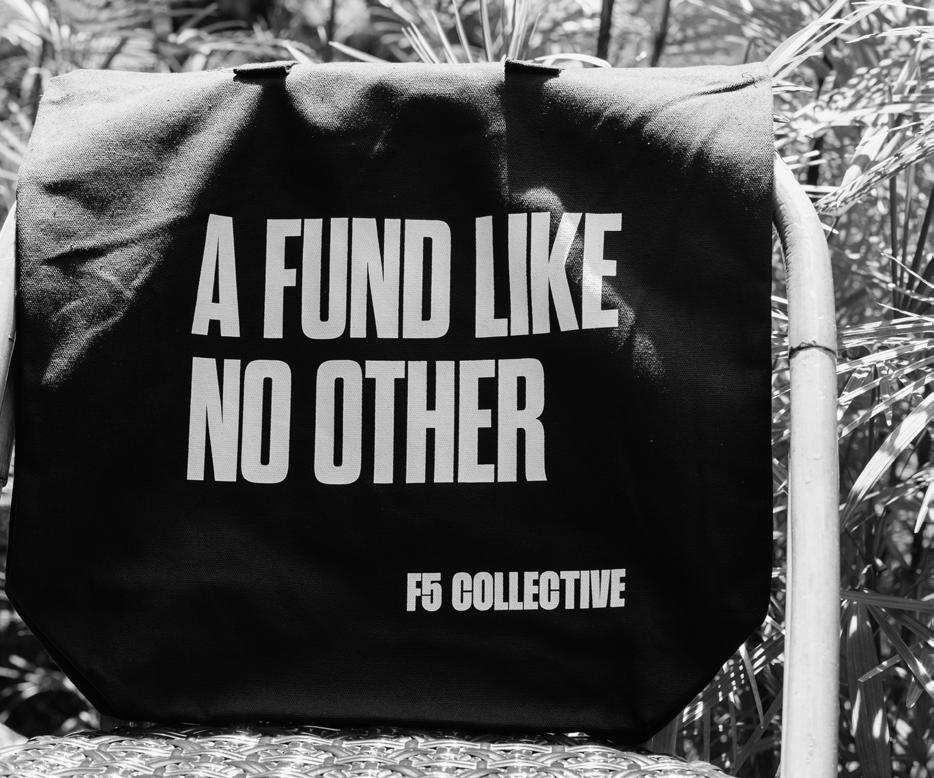THE F5 MAGAZINE EMPOWERED, AWARE, PREPARED

CSW69: Women are Done Waiting Dawn Minott Champions Rights for All





CSW69: Women are Done Waiting Dawn Minott Champions Rights for All



PAGE 3
A MESSAGE FROM THE CEO
TRACEY WARREN
PAGE 4-7
PURSUING PARITY — DAWN MINOTT PROTECTS LIVES BY CHAMPIONING WOMEN’S RIGHTS
DAWN MINOTT
PAGE 8-9
WOMEN IN BUSINESS SPOTLIGHT — FODBODS
VANESSA HUTCHINSON
PAGE 10-11
HIDDEN VOICES — NIMISHA
TAILOR: IGNITING THE FEMALE DIGITAL REVOLUTION
NIMISHA TAILOR
PAGE 12-15
ALLYSHIP — CSW69: WOMEN ARE DONE WAITING — IT’S TIME TO SEIZE POWER
TRACEY WARREN
PAGE 16-19
WOMEN DOING GREAT THINGS: PART 1 OF KNOWLEDGE IS POWER — ANNABELLE CHAUNCY EMPOWERS THROUGH EDUCATION ANNABELLE CHAUNCY
PAGE 20-23
WOMEN DOING GREAT THINGS: PART 2 OF KNOWLEDGE IS POWER — TERRIE SUICA-REED TURNS TRAGEDY INTO TRIUMPH
TERRIE SUICA-REED
PAGE 24-25
THE BEAUTY OF FINDING YOUR TRIBE AND EMBRACING YOUR STRENGTHS
BREE KIRKHAM
For too long women have been told to wait. Wait for funding. Wait for leadership opportunities. Wait for the system to catch up. But the truth is, the system was never built for us and waiting will never be the strategy that gets us ahead.
So, in 2025, we are not waiting. We are taking. Taking back power, taking back capital, taking back control. This is the year of action, ownership, and unstoppable momentum.
As I reflect on my recent time in New York at the United Nations for CSW69 / Beijing+30 — a critical global gathering on gender equity — one truth stands out more clearly than ever: change is not something we wait for; it is something we build. Leaders, policymakers, and changemakers from around the world came together to assess progress, challenges, and the urgent gaps that remain, and the message was undeniable — the current system isn’t evolving fast enough. If we want a world where women have true economic power, we can’t keep pushing for incremental change. We must design, build, and lead the system that serves us.
And at F5, we are building the system that makes that happen. This year, F5 is not just launching programs — we are launching a new era for women in business. We are building five pillars of support designed to fundamentally change how women access capital, scale businesses, find their power, and reshape the economic system itself
L ACCESS: We are dismantling financial barriers and unlocking new doors to capital, ensuring women no longer need to navigate systems that were never designed for them. Instead, we are creating funding models that truly work — designed for women, by women
L SCALE: Ensuring that women don’t just start businesses — they dominate industries. We are creating the pathways for women-led businesses to compete, thrive, and own their space at the top
L COMMUNITY, LEARNING & SUPPORT: Success is not a solo journey, it is built through connection, knowledge, and collective strength. By providing cutting-edge education and a global network of high-impact women, we are creating an environment where women gain the skills, confidence, and support to accelerate their growth and lead with power.
L POLICY & SYSTEMIC CHANGE: We are not waiting for change — we are change. Through landmark legislation, global economic advocacy, and bold reforms, we ensure that women are not just part of the conversation, but at the centre of economic decision-making — where real power lies.
L F5 FOUNDATION: Breaking Cycles of Poverty. We are lifting women out of poverty by providing grants for nano and micro businesses in underserved communities across the globe. These grants are more than just “funding” — they are a catalyst for financial independence, enabling women to build sustainable businesses, support their families, and drive economic transformation within their communities. By investing in women at the grassroots level, the F5 Foundation is breaking systemic barriers and initiating lasting generational change
This is not just support — this is a revolution. F5 is putting the power where it belongs: in the hands of women who are ready to build, scale, and lead on their terms
THIS IS A POWER SHIFT. AND WE WANT YOU IN IT. F5 IS A FORCE. A MOVEMENT. A REVOLUTION.
We are creating a world where women don’t just access funding — they own wealth.
Where women don’t just get a seat at the table — they build the tables
Where women don’t just survive in business — they dominate, innovate, and lead
And we want you to be part of this.
If you are ready to join something bigger and step into a space where you are backed, resourced, and seen — F5 is where you belong
This is the year of bold action. The year we don’t just talk about change, we create it.
Let’s build it together.
With power and purpose,
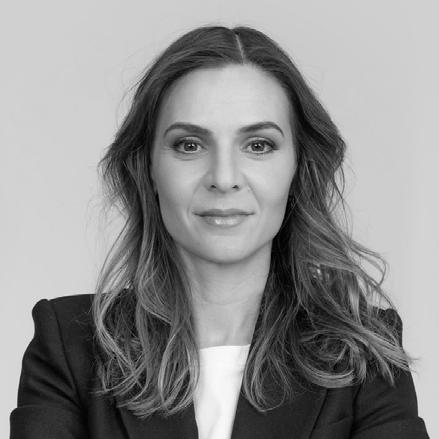
Tracey Warren, CEO, F5 COLLECTIVE
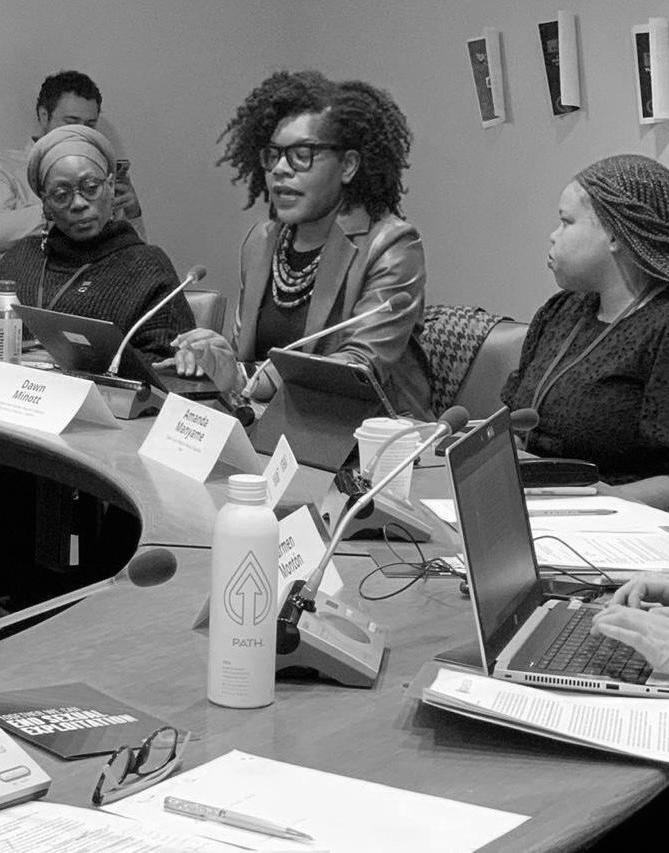
Through passion, perseverance, and artivism — activism + art — United Nations Populations Fund (UNFPA) Gender Advisor Dawn Minott strives for a safer, more peaceful world through gender equality and building awareness, fulfilling the organisation’s slogan of
“Ensuring rights and choices for all.”
Forthelast25years,DawnMinotthasworkedattheUNinonecapacityor another,havingjoinedtoaddress,end,andhelpothershealfromviolence againstwomenandgirls,andtopromotefemalesexualandreproductive health.Hercommitmentradiatesfromher,offeringalevelofcomfortand hopethatmakesonefeelcalledtoactiontoenablehercause.
OneofsevenchildrenborntoasinglemotherinJamaica,violence— particularlyviolenceagainstwomen—wasacommonoccurrenceinher smallCaribbeancommunity.Shedidn’tunderstandthe“why”ofit,but astimewenton,shechosetopursueinternationalrelationsandpolitical sciencewithafocusongenderstudies,expandingherawarenessand seekingtheanswertotheelusive“why”ofdomesticviolenceaswellas advocacyforwomen’sreproductiverights.
UponjoiningUNFPA,Dawn—whoneverthoughtshe’dleaveherhome country—workedatUNheadquartersinNewYork,andinofficesin Nigeria,Barbados,hernativeJamaica,andSouthAfrica.Inhercurrent roleasGenderAdvisorattheHeadquarterslevel,herworksupports officesglobally,UNFPA’sworkinover150countriesandterritoriesaround theworld,andtoensureprogramsaretrulygendertransformativeby raisingawarenessandstrengtheningcapacityonhowtorespondtothe differentialneedsbetweenmenandwomen.
Originallyestablishedin1969astheUnitedNationsFundforPopulation Activities,UNFPAchangeditsnametotheUnitedNationsPopulation Fundin1987butheldontotheacronym.Itsgoalincludesensuringgender equalityandempowermentofwomen,girls,andyoungpeopletomake informeddecisionsabouttheirbodiesandtheirlives,amissionsetby theProgrammeofActionestablishedattheInternationalConference onPopulationandDevelopment(ICPD)inCairo30yearsago.The177pagedocumentwasadoptedby179countries,andUNFPAhasbeen workingtowardsthisgoaleversince,especiallyinthefaceofthecurrent geopoliticalshiftswiththepushbackonwomen’srightsandthewakeof technologyandsocialmedia.
ThelatestdatafromUNWomenandtheUNODC—UnitedNations OfficeofDrugandCrime—foundthatevery10minutes,awomanorgirl ismurderedbyanintimatepartnerorfamilymember,and1in3women experiencesexualandotherviolence.Whilemenarealsovictims,acts againstwomenaregender-based.Eradicatingthisandshiftingthat paradigminfluencestheworkDawnandtheUNFPAaredoing.
Theonlinespacehasitsownissues.DuringCOVID,vitalserviceswent digital,butmanywomenhesitatedtakingadvantageofthembecauseof onlineharassmentandviolencetheyexperience.Additionally,duetothe
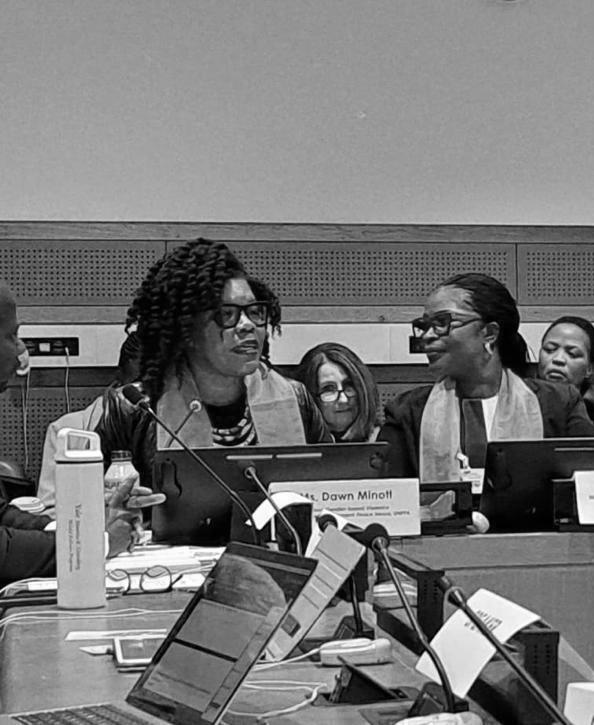
“I WANT TO BE IN A WORLD WHERE THIS TYPE OF VIOLENCE IS NOT ACCEPTED. SADLY, IT’S BECOMING NORMALIZED WHERE GIRLS ARE SAYING, ‘IF I’M NOT HIT BY MY BOYFRIEND, HE DOESN’T LOVE ME.’ THAT NEEDS TO BE DISRUPTED.”
“I’m 5’11” and I remember a time I felt I needed to make myself smaller. Now, I always wear heels and when I walk into a room, I’m 6’2” or 6’3”. It is important for us to know that we must be bold — not just by what we say but by how we present ourselves. Be bold, be persistent, and hold onto your dreams.”
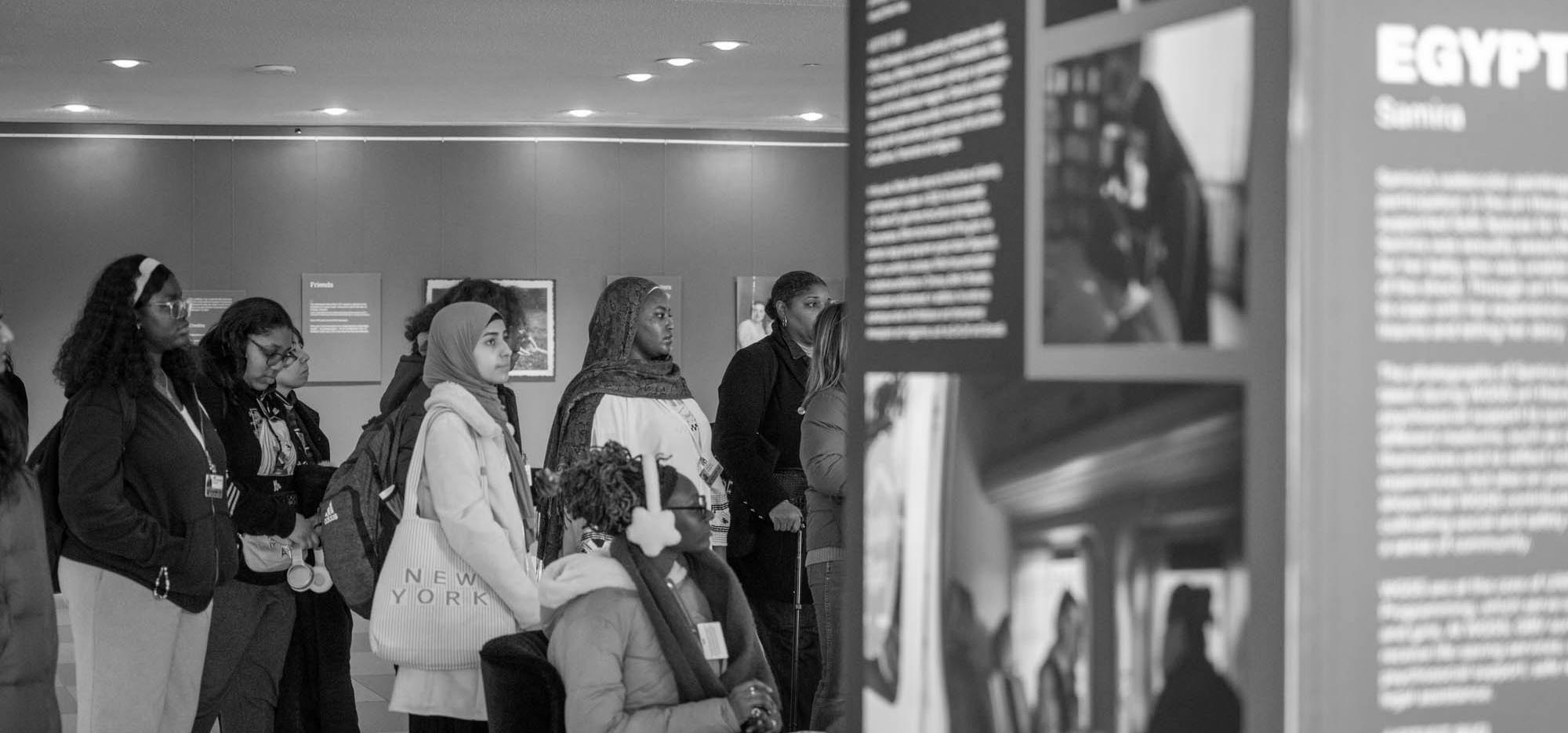
digitaldividerelatedtogender,fewerwomenhaveaccesstothe onlineservicestheyneed.ArecentreportfromUNICEFrevealed thatacross32countriesandterritoriesanalysed,forevery100 maleyouthwhohaveonlineskills,only65femalesdo.
UNFPAhasdonea30-yearreviewofwhattheworldhas achievedsincetheINCPDandwhiletherehavebeensome achievements,therearestillmanychallengestoovercome.
“Thisiswhatdrivesmypassionandkeepsmeuplateat night.Iwanttobeinaworldwherethistypeofviolenceisnot accepted.Sadly,it’sbecomingnormalizedwheregirlsare saying,‘IfI’mnothitbymyboyfriend,hedoesn’tloveme,’” Dawnshares.“Thatneedstobedisrupted.”
AsSimoneClarkerevealedinourIssue2interview,aUNstudy showsthatatthepaceweareprogressing,itwilltake300years forlegalgenderequalitytobeachieved.Dawncan’tabidethat timeline.
“Idon’tknowaboutyou,butthatdoesnotsitwellwithmeatall. WhatIdoinmyworkisaimingtochipawayatthose300years andthat’swhatdrivesmeandtheworkIdoattheUNFPA.”
Violenceisalearnedbehaviour.Thatmeans,itcanbeunlearned. Toreversethis,Dawnincorporatesherloveoftheartswith activism,or“artivism.”Sheisapoetandusesthattoopendoors intoheartsandcreateanemotionalconnectionthroughher work.
“Yes,thestatisticsaredevastating,butthereisawoman—a girl—behindeachofthosenumbers.IfIcanspeaktoyour heartandgettotheemotivesideofthisissue,thatisafar strongeropportunitytoopendoors.Theartshaveawayof connectingemotionallythatapolicyorprogramcannot.”
For the last three years, Dawn has managed the global 16 Days Campaign for UNFPA that kicks off on the International Day to End Violence Against Women — November 25th — and ends on December 10th. In honour of the 25th anniversary of the resolution, UNFPA amplified its country offices’ events and activities to be more visible at a global level. Dawn wove artivism into every aspect.
“I collaborated with the UN Department of Global Communication, and I installed an exhibition at the UN headquarters, and 15 country offices made submissions.”
The exhibition highlighted elements of UNFPA’s work, including recreating the “safe space” concept within the exhibition as well as demonstrating the power of art as therapy.
Dawn commemorated those 16 Days of Activism with a poem of her own — “A World Without Fear.” It takes the reader through the emotional depth of what women face every day, encouraging action and empowerment.
A key component of change in gender equality is engaging with men and boys. It is vital they see their role as allies, understanding when women thrive, men do not lose. Rectifying the misinformation that gaining equality takes away from men is critical and Dawn actively creates opportunities of inclusion to broaden awareness.
Another component is to find better ways to engage with policy and decision makers. Many governments have signed on to various commitments — CEDAW, the convention on the elimination of all forms of violence against women, the CRC (Child Rights Convention) — but the challenge is in implementing them. Having policies in place is one thing, but these policies need to be budgeted for and ensured the level of government to act in their role as duty bearers, because —
“This is about human rights and it’s necessary that they are active in making sure these policy changes come to bear. Governments have a responsibility not just to their women and girls, but men and boys as well.”
Eradicating violence against women may have a long road ahead, but there are pockets of hope that keep Dawn and those at the UNFPA motivated and inspired to continue bringing awareness and action.
The young women who choose to intern with Dawn and others at the UN are inspiring. These new voices are pushing for change and working to make a difference, carrying forth the mantle to encourage others to do the same.
Around the world, more women are taking on leadership roles. The harassment thrown at them is vast and more prevalent than that of their male counterparts, but it is heartening to see an upswing in gender equality in positions of government, politics, education, and business.
Another glimmer of hope is how young people’s activism has changed global politics.
“There is a bravery that young people coming to this work have that I did not. They are raised today with a sense of responsibility and see inequalities in a way that is far more impactful than I experienced it,” Dawn points out. “They are more vocal and visible in demanding social justice and social equality. In many ways, they are driving conversations around the need for this change. That’s very encouraging.”
Dawn is aware of the challenges she faces supporting women’s sexual and reproductive health and eliminating violence, but she knows she is not alone. UNFPA is committed and she sees the other work being done by other women, sharing what keeps her going with advice for others.
“I’m the product of a single parent home. I want to honour my mother in the way that I honour the women and girls I come into contact with in the dayto-day operations of my work. There’s a level of resilience I see in my mom that has translated to me. It allows me to see the worst kinds of abuse against women and keep going. While I recognize not all mothers are here with us and not all mothers are great moms, women play a tremendous role in our society, and I honour first my mom. That is advice I give. Honour if not your mom, honour the moms.”
Dawn continues, “My second bit of advice is to be bold. I’m 5’11” and I remember a time I felt I needed to make myself smaller. Now, I always wear heels and when I walk into a room, I’m 6’2” or 6’3”. Sometimes I’m the only woman in the room and, more often, I’m the only Black woman. It is important for us to know that we must be bold — not just by what we say but by how we present ourselves. Be bold, be persistent, and hold onto your dreams.”
UNFPA is working hard, and Dawn holds onto her optimism in the face of the very real everyday challenges because, “At UNFPA, we dream of a world where there is zero gender-based violence and harmful practices, zero unmet need for family planning, and zero preventable maternal death. Women should not die giving life. That is the organisation I work for. Those are the transformative results we have in mind. I buy into them wholeheartedly. And wherever my career takes me, it is to get me to do more of that.”
Byline: Linda Morris
The poem Dawn shared for the 16 Days of Activism begins with this powerful stanza that shines a light on the dangers and fears women face and that are often ignored:
In a world we all know too well
Women’s bodies bear violence—scarred
A contested space, a battleground
Where autonomy is a forlorn wish
Where choice, stripped away and silenced, becomes
A ghost of its once true self
Where home is where the harm is
How can love unfurl its wings?
How can dreams find light when darkness lingers
Where safety should sing?
For one in three women—intimacy’s touch turns violent
Every 10 minutes—for one woman—intimacy’s touch turns turbulent
As love’s promise becomes the cold hand of death
With no right to say no, no right to say yes—
When to bear life or when to hold it close
Their own bodies betrayed by laws and customs, imposed
Written by hands that will never know
The weight of their words, death sentence proposed
Click here to experience the poem — A World Without Fear — in its entirety.

“If I can speak to your heart and get to the emotive side of this issue, that is a far stronger opportunity to open doors. The arts have a way of connecting emotionally that a policy or program cannot.”
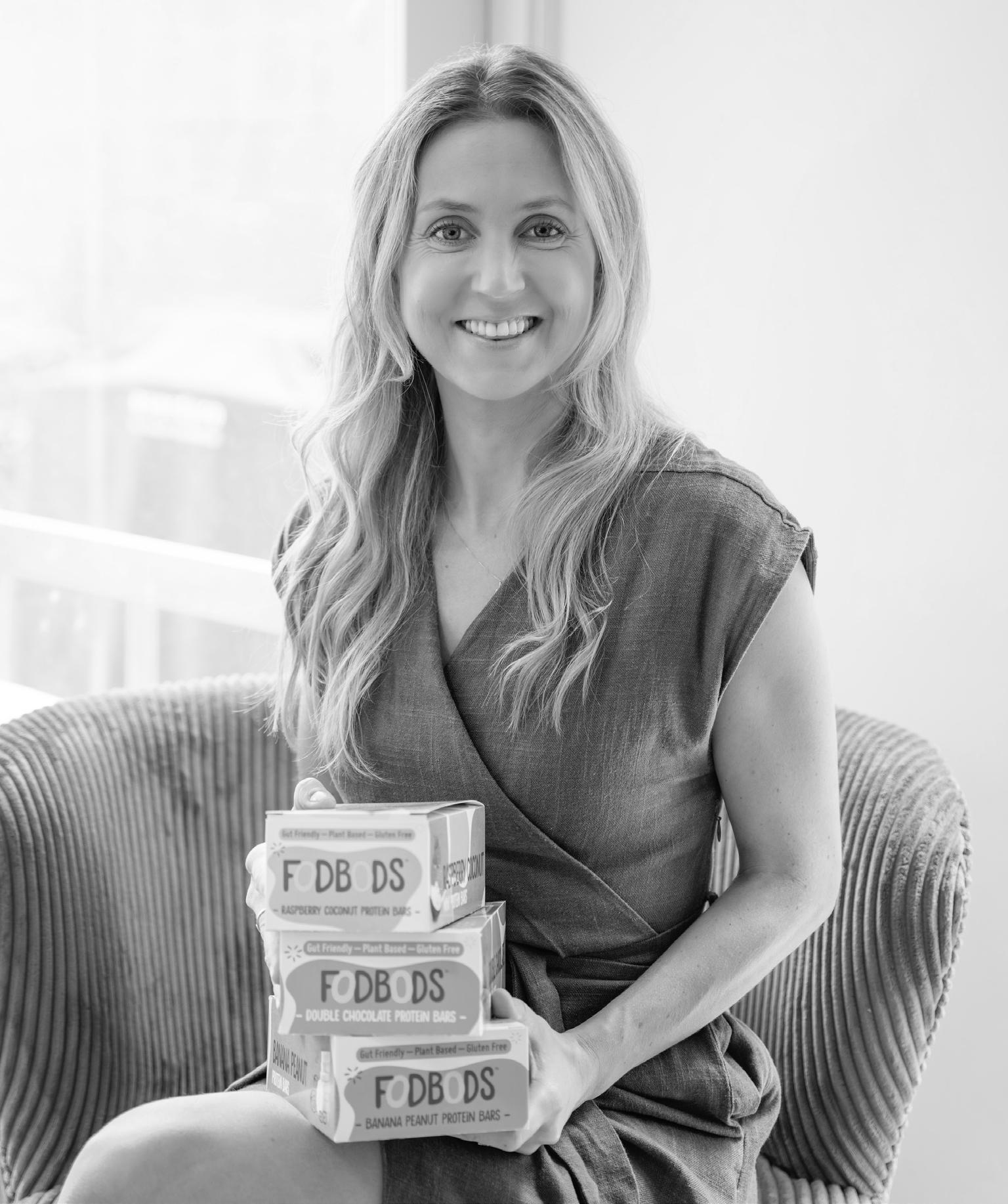
“Farewellgutissues.”VanessaHutchinsonsufferedforyearsandafter learningtoeatright,sherealizedtherewasacrucialgap—gut-friendly snacksmadeofrealfoodforrealpeople.Thismonth’sWomenin BusinessSpotlightfollowstheFodbodsfounderonherquesttocreate “delicious,healthysnacksthatloveyourguts.”
QTell us a little about yourself and how your upbringing brought you to entrepreneurship.
I was born in Melbourne, and my dad was a founder. He started a company with a man who was Swiss, and we ended up moving to Geneva when I was 11. From an early age I was exposed to the extreme highs and lows of startup life — one month we’d have plenty of money and going out to restaurants, the next we would be eating beans on toast. I found the growth from nothing turning into something big and exciting, and I got comfortable with that rollercoaster.
Q
How did you decide to start your own business?
I’ve had gut issues for as long as I can remember and they got progressively worse as I got older. Before starting Fodbods, I was Head of Ops at a tech company — travelling a lot and working crazy hours. The symptoms were particularly bad during these times of stress. Someone introduced me to the Monash FODMAP diet — a diet designed to manage IBS symptoms that’s recommended by dietitians all over the world. I found common themes among foods, I cut things out and felt normal. The challenge was when I was out of the house and didn’t have control over what I ate. I started packing my own food and as convenient as protein bars are, I couldn’t find any that didn’t cause gas and bloating. That led me to do a lot of competitive analysis because I saw all these other people seeking the same thing, and it caused me to start Fodbods.
QWhat is your “Ah-HA!” moment with your business — the moment you knew “This is it!”?
At the very beginning, we had a crappy website that even I probably wouldn’t have ordered from, and the shipping experience was not great because I had no ecommerce experience, but people kept ordering and giving me positive feedback. That made me realize we were on to something.
QWhat have been some of your biggest pain points and how have you dealt with them?
The two things that keep me up are cashflow — but that’s everyone’s challenge — and I am a sole founder, which means the business depends on me. I have a lot of support but five years on I still don’t take a salary. I reinvest in the business and other people — those who are much better at certain things than I. But it does weigh on you because the outcomes are so polarizing. If it becomes a big success, how lucky am I to have worked on something I’m passionate about in a relatively flexible way? But if it goes bust, then the amount of sacrifice that I made was for nothing.
How do I keep going through all that? Belief in the opportunity. I can genuinely see this being a disruptor in the food space. The other thing that no one tells you about starting a business is that it’s easier sometimes to keep going than it is to quit.
QWhat are some of your biggest successes and how have you celebrated them/have they propelled you forward?
There have been lots of successes along the way, but the main one is customer feedback. Not only do our products taste amazing but they genuinely leave people feeling great. Customers are often skeptical because they’ve had gut issues for ages, then they try Fodbods and they say, “Oh my gosh, my tummy didn’t react. This has never happened before” and then they’re hooked! Those to me are the biggest successes. Just hearing from the customers that Fodbods has changed their lives. I’m grateful for the opportunity to be making a difference in people’s lives.
What propels me forward, though, is my kids. I want to make them proud.
QWhere do you go from here with Fodbods?
I can genuinely see Fodbods all over the world and products in every category so that if you want something safe for your gut that’s wholesome, natural, and tastes good, you can trust the Fodbods brand. Millions of people suffer from gut issues, and they desperately need products they can trust. Having a brand that they can always depend on and products they feel confident consuming would be life changing.
Ideally, I’d like to find a partner to launch in the US. I’m not precious about running the company. I just want to see it succeed.
QWhat advice do you have for other female founders?
Equip yourself with as much knowledge as possible, so if people try to trip you up, you don’t let that happen. Understand your industry, understand what competitors are doing, understand your business and your financials so you’re in a position of power in those conversations.
Play to your strengths. Women usually run more foundationally strong companies and we’re often more empathetic so we can understand customers better. Instead of looking at it as a detriment, lean into being a woman. Believe that you are just as capable as men.
VISIT FODBODS TO LEARN MORE ABOUT THE BRAND AND THEIR PRODUCTS THAT TASTE AS GOOD AS THEY FEEL.
Byline: F5 Editors
Thefounderoftheconsultancyfirm,e-nomics,welcomesyoutothefourth industrialrevolution:technologyandwomentakingtheirfinancialpowerin thedigitalspace.
The first line in the Author Notes of Nimisha Tailor’s new book, The Female Digital Revolution, reads, “My parents’ shop in Luton, England is where I spent most of my school holidays, meeting different customers like office workers buying newspapers and kids buying sweets.” On the surface, this may seem like a simple, nostalgic statement but it is the cornerstone of what led Nimisha to have the career she has and focus on marrying economics with soft skills. In doing so, she not only learned what was purchased but why, gaining insight into the importance of giving people what truly matters to them.
“I’m stocking shelves, hanging out with my parents, working in the shop, and that is where I suddenly see business benefits,” Nimisha says. “I see lots of different customers come into the shop and see what people are buying, what sells, what doesn’t, and you learn how to compete with the supermarket.”
Paying attention to the commerce in her parents’ shop — the ebb and flow, the give and take — got Nimisha interested in economics. At age 14, she started studying it in school. She was fortunate to have an incredible teacher who made a huge impact on her and got her interested in learning about something more than business studies or business administration.
“I’d go home, and my dad would be watching the news and he always made us watch with him. I could see how to relate what I was learning with what I was seeing in the news. I started seeing the link and that made a difference. Real world implications.”
ButitwasmorethanjustunderstandingnumbersandGDP. NimishastarteduniversityinLondonandlearnedthatknowing theoriesandframeworksisallwellandgood,butit’sallinhow youcommunicatethatinformation.Communicationwasthekey toimpactandprogress,andNimishadevotedherselftolearning moreaboutthevalueofsoftskills.
“IfIwerethebesteconomistintheworldbutmycommunication skillsarenotgood,they’llfeelitrightawayandIwon’tbeableto helpanyone.”
As Nimisha continued in her career, she decided that her goal was to keep the economics simple and communicate it with a desire to drive change and make a difference in the lives of those she worked with. Impact.
“Everyone wants to make a difference, but how do you do that? That’s the bit. The how.”
For Nimisha, it came through mentoring and volunteer work. Going into communities and approaching every moment with passion to connect with someone to lift them up.
“I love how you can be with people from different places, from different career paths, different interests, but if you’re open enough, you will find something that will connect you. And when you are open to that connection, you have the possibility of having influence.”
Influence. Something Nimisha noticed women did not always have and as the world became more digital, she saw an opportunity to enlighten and encourage.
“Having a fancy title doesn’t automatically mean you’re able to influence. You could just be some individual in some small group, but you still have the power to influence if you find that common ground and that connection.”
Encouraged by that belief and watching the lack of gender representation in the digital financial space — and a desire to encourage women to embrace their digital power — Nimisha chose to share some well-earned insight.
Nimisha’s economic and communication skills have taken her through various roles during her career. Having worked in government in the UK, New Zealand and Singapore, she regularly spoke and wrote on competition and regulation matters as a government official. Upon leaving government she stepped out of her comfort zone and wrote an article with her own byline that got published in a journal, and it sparked the desire to put herself out there on a subject that had been intriguing her for a long time: the digital economy and the lack of gender representation and missed opportunities for women.
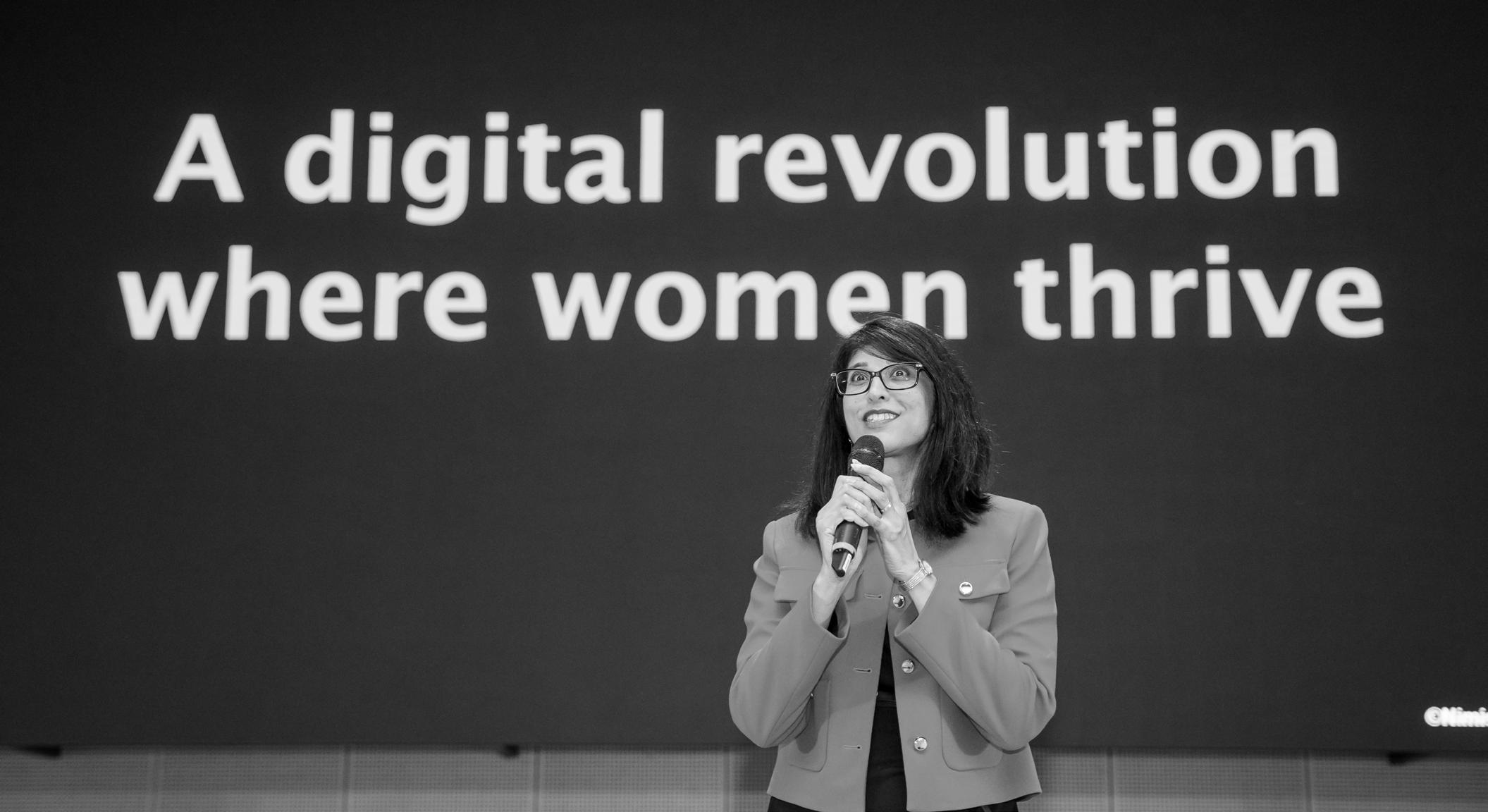
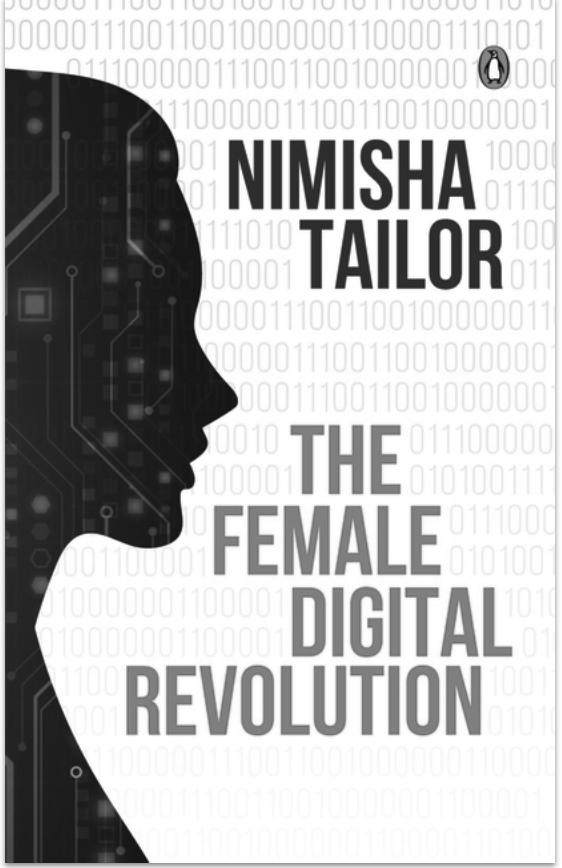
At the time, Nimisha was working for a consulting firm focusing on the digital economy. She was looking at digital payments, digital trade, and how governments were incorporating new forms of trade agreements that involve technology. Doing so allows businesses to access the digital economy to become better connected, and operate more quickly and economically with enhanced safety and security.
This digital revolution is considered the fourth industrial revolution — a new frontier of unlimited possibilities. There are opportunities for all, including and especially women. Nimisha noticed these paths were not being taken full advantage of and she wanted to change that. It’s not necessary to be an engineer or a tech whiz. Women’s participation matters and some are already making a huge difference. Knowing this, Nimisha believed by sharing stories and insights, she could bring more women to this revolution that not only needs but enhances them.
To do that, Nimisha wrote a book.
Nimisha is a natural storyteller and her book shares different tales meant to inspire and inform. In this way, the mentor in her shines through as she uses her words and insights to continue helping those who feel helpless or unmotivated. They offer insight not only into what is possible, but essential for women within the digital economy.
Her passion for ensuring that women are part of the economic conversation is reflected in every page and she is committed to helping them see their role as a benefit and vital to economic growth. Women are key to this new industrial revolution and are a force to be reckoned with.
“The book takes lots of stories to showcase what the digital economy is and what women are doing in it,” Nimisha says. “These are significant contributions they’re making and raising the spotlight on that is to inspire other women who may have never thought themselves capable of doing the same thing.”
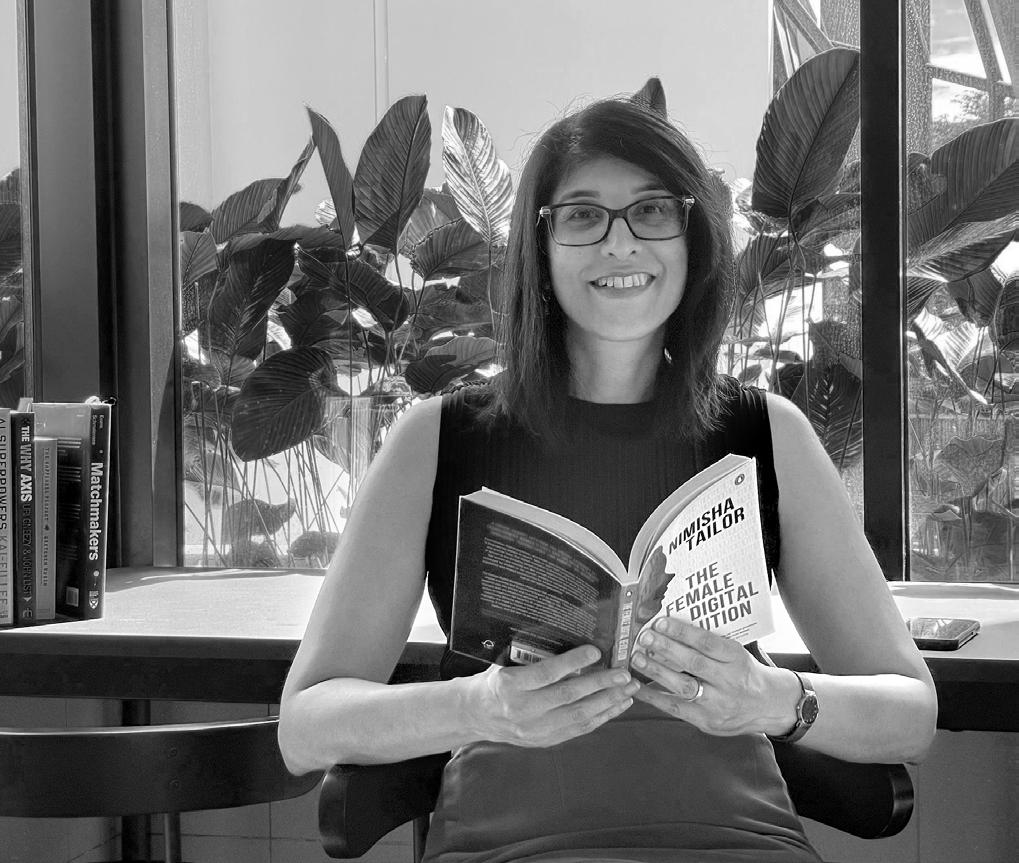
Byline: Linda Morris
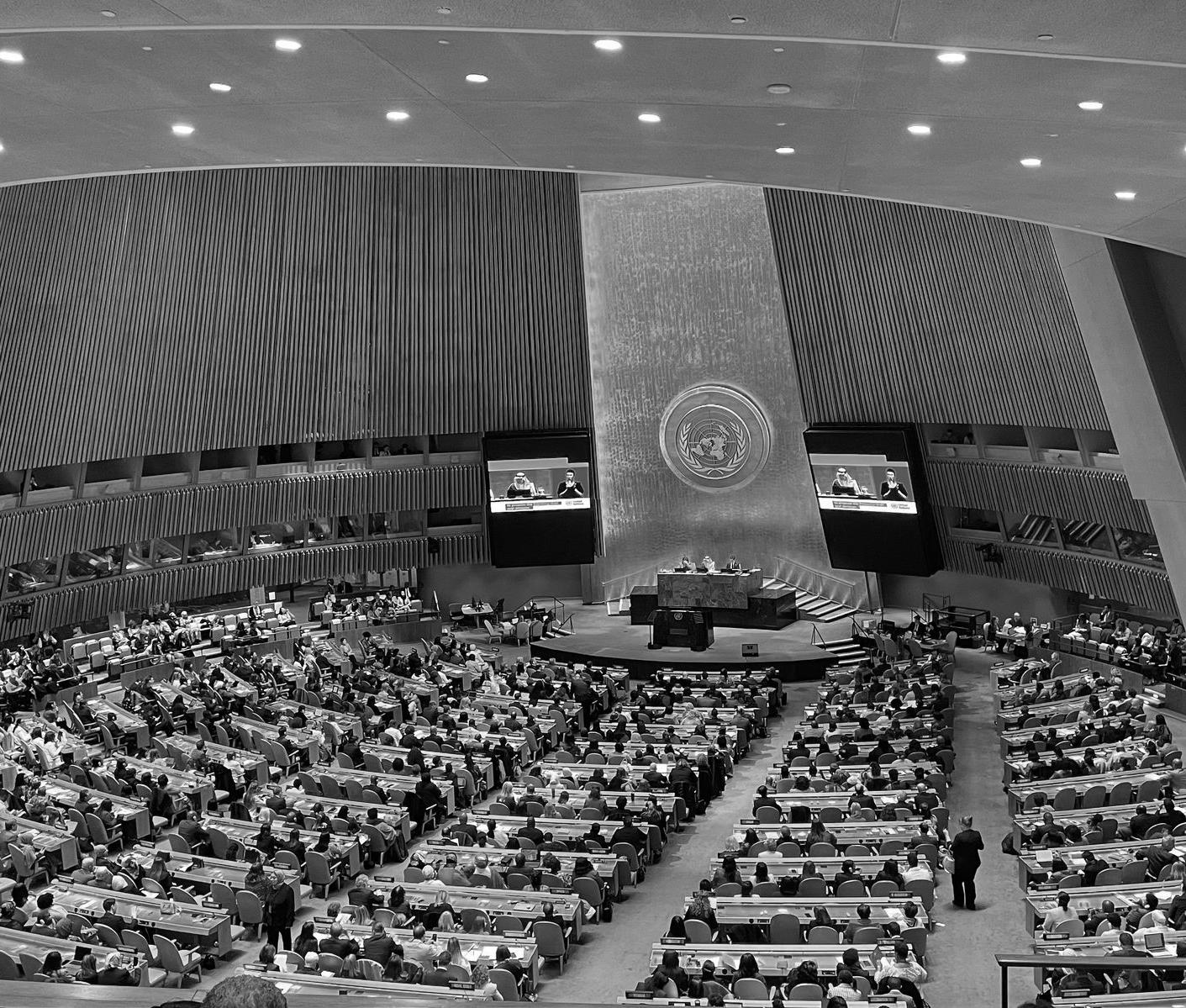
StandinginNewYorkattheUnitedNationsforCSW69/Beijing+30, surroundedbygloballeaders,policymakers,andchangemakers,Ifeltthe weightofhistorypressingdownonthismoment.Thiswasnotjustanother convening.Thiswasacrossroads,areckoning,amomentwherewemust collectivelydecide:Willweacceleraterealchange,orwillwecontinuetowait forpromisestomaterialise?
The energy throughout the week has been electric; charged with urgency, purpose, and a resounding demand for action. There is no patience left for incremental progress. The atmosphere was energised, focused, and deeply purposeful; a shared understanding that we are no longer discussing ideals — we are moving toward action-oriented solutions. There was a powerful shift to knowledge-sharing, coalition-building, and international collaboration — not simply to consolidate past gains but to ignite new strategies, break new ground, and demand real results.
As Baroness Harriet Harman, Special Envoy for Women and Girls from the UK, aptly stated: “The hand of history is on our shoulder at this CSW.”
Political signals matter. And as the world gathered to reaffirm commitments to gender equality, Australia’s absence in key discussions was glaring. In an environment where presence signals intent and commitment, the lack of Australian panel sessions and enough engaged government representatives underscored a missed opportunity to engage in the global momentum for women’s economic and political empowerment. In the meantime, other nations were forging bold paths forward. Some are using government intervention, public-private partnerships, and enforceable mandates to drive equality rather than waiting for voluntary measures to succeed.
One of the most striking moments of CSW69 was Iceland’s continued leadership in gender equality. This year marks 50 years since the Women’s Day Strike of 1975, when women across Iceland walked off the job, left their homes, and stopped unpaid labour for a full day to demonstrate their irreplaceable contribution to society.
In just 24 hours, Icelandic women paralysed the country, forcing leaders to recognise their economic and social value. Their courage sparked a global movement, proving that real progress is not given — it is seized. Five years later, Iceland elected the world’s first democratically chosen female president, Vigdís Finnbogadóttir.
Their story is a powerful reminder that change is not something we wait for — it is something we create.
At a UK-led session on gender equality, one truth was undeniable: Voluntary agreements across industries have failed. The private sector alone cannot solve systemic inequality. Government intervention is essential.
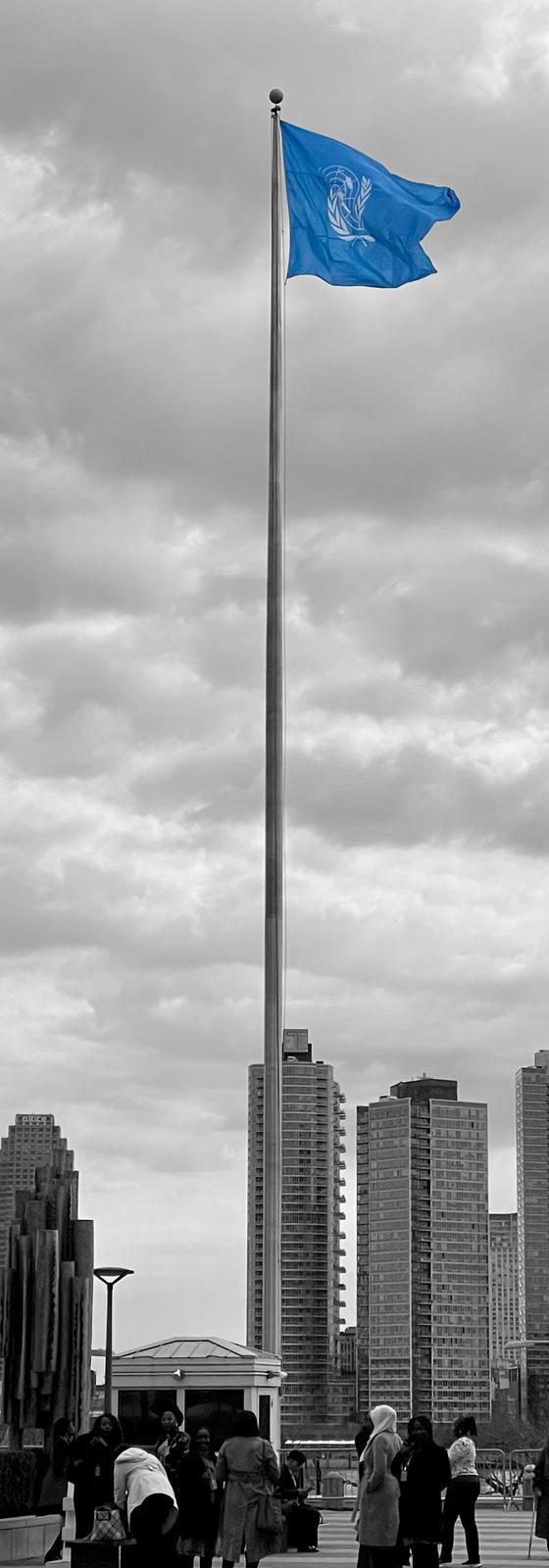
The digital revolution holds great promise. We have to ensure that women are not only part of digital transformation — they are driving it.
Dr.AnnaCodyoftheAustralianHumanRightsCommission addressedAustralia’sownreckoningwithworkplacesexual harassment,citingthe2017NationalInquiry,whichproduced55 keyrecommendations.Amongthem,themostcritical wasafundamentalshiftfromreactivepoliciestoproactive, preventativelaws.Theresponsibilitymustnolongerfallon individualstoreportabuses—itmustfalloninstitutionsto preventthem.
ThisglobalconversationmadeitclearthatAustraliamustadopt asimilarproactiveapproachacrossothersectors;onethat combinespublicandprivatepartnershipswithgovernmentmandatedinterventions,forgingaccountabilityacross workplaces,industries,andleadershipstructures.
AcrossmultiplediscussionsatCSW69,onefactbecame undeniable:Technologyisrevolutionisingthefightforgender equalityonlyifwomenareatthecentreofinnovation Thedigital revolutionhasthepotentialtobridgegaps,accelerateprogress,and dismantlesystemicbarriers,buttoaccomplishthat,itmustbe designedwithwomen’sneeds,experiences,andleadershipinmind. IntheGlobalSouth,technologyisalreadyunlockingeconomic independence,digitalliteracy,andnewcareerpathwaysfor millionsofwomenandgirls.Accesstomobilebankingand fintechsolutionsisallowingfemaleentrepreneurstobypass traditionalfinancialbarriers,whilee-learningplatformsare providingwomenwiththeskillsneededtocompeteinhighgrowthindustrieslikeSTEManddigitalentrepreneurship.Access aloneisnotenough,however.Therealmeasureofprogressis whetherwomenhaveagency,ownership,andleadershipinthe creationanddeploymentofthesetechnologies.
AsSimaBahous,UNWomenExecutiveDirector,powerfully stated:“Thedigitalrevolutionholdsgreatpromise.Wehaveto ensurethatwomenarenotonlypartofdigitaltransformation— theyaredrivingit.”
Buttechnologymustgobeyondaccessandinclusion.Itmustbe builttoactivelytransformhealthcare,financialinclusion,and safetyforwomen.Thelackoffundingforresearchinwomen’s healthisaglaringexampleofgenderbiasininnovation.Molly Bode,apartneratMcKinsey,calledattentiontotheappalling underinvestmentinwomen’shealthresearchanddevelopment, notingthatclosingthegenderhealthgapcouldgenerateover$1 trillioninannualGDPby2040.Thisfundinggapcanbeseenclearly withEndometriosisaffectingthesameratesof1in10womenas Diabetesandyetfundingratesforresearchareat0.2%
Atthesametime,wemustconfrontthegrowingdangersofbias inartificialintelligence(AI).AIisshapingeverythingfromhiring decisionsandhealthcarerecommendationstolegalsystemsand financialriskassessments.WhenAIistrainedonbiaseddatasets thatreflectdecadesofsystemicdiscrimination,however,it perpetuatesandevenamplifiesgenderinequitiesratherthan eliminatingthem.WomenarealreadyfacingexclusioninAIdrivenhiringtools,loanapprovals,andautomateddecisionmakingsystems,oftenwithouttransparencyorrecourse.
For AI to be an engine of progress rather than a reinforcer of bias, it must be built with women in mind. That means ensuring that women are deeply involved in AI development, training data is representative, and ethical oversight is embedded into AI systems to identify and correct bias in real time. AI must serve as a tool for inclusion, not exclusion.
From healthcare algorithms to financial AI systems, from digital safety tools to AI-driven education platforms, the future of technology must be designed by women, for women, and with women at the decision-making table.
The digital revolution can be the great equaliser of our time only if we seize the opportunity to shape it.
The UNFPA session, “Equitable by Design in Financing,” made it clear that gender equality is not just a moral imperative — it is an economic necessity.
Ms. Laura Rissanen, State Secretary to the Minister of Social Security in Finland, described how Finland rose from poverty by investing in primary healthcare with a particular focus on women and children. This strategic investment transformed Finland’s economy, lifted millions out of hardship, and created one of the world’s most advanced social systems.
H.E. Mr. Olivier Maes, Permanent Representative of Luxembourg to the UN, reinforced that gender equality is a strategic priority for Luxembourg — not an aspirational goal, but a non-negotiable pillar of national policy.
Luxembourg is a key funder of the UNFPA Equaliser Fund, an initiative designed to finance innovations with women, by women, and for women. The country’s approach prioritises:
• Technology-driven solutions to accelerate gender equality
• Multi-stakeholder partnerships to drive innovation
• Sustainable, long-term financing models that build lasting impact
Their approach is proof that investing in women is not charity but a strategic investment in economic growth and global stability.
Saudi Arabia made a notable effort to showcase its advancements in women’s rights, with a strong delegation keen to highlight the progress made in recent years. The country emphasised reforms in education, workforce participation, and legal protections for women, aiming to position itself as a nation moving forward on gender equality. Beneath the polished narrative lies a deeper contradiction, however. In a country where women were only recently granted the right to drive, and where their mobility and autonomy remain heavily regulated, how seriously can these claims be taken?
Progress cannot be measured solely by surface-level reforms or state-approved narratives; true gender equality is reflected in the lived experiences of women, their ability to exercise full agency, and the dismantling of systemic barriers that continue to inhibit their rights. Until women in Saudi Arabia are truly free to move, work, and lead without restriction, the world must continue to ask, “Is this transformation real, or just a well-crafted display?”
In a powerful display of global solidarity, 15 nations including Australia stood together at CSW69 to condemn the systematic erasure of Afghan women from public life. The ongoing unprecedented rollback of women’s rights in Afghanistan has intensified, drawing international outcry and calls for urgent action.
The term “gender apartheid” is now being used to describe what is unfolding: A crisis that is not only a human rights emergency but one of the most complex and multi-layered global challenges today. At the heart of this crisis lies systematic and institutionalised discrimination against women, stripping them of their human dignity, livelihoods, access to healthcare, and fundamental ability to contribute to their society.
As the world prepares to mark the 13th anniversary of the European Declaration and the 25th anniversary of UNICEF 2025, Afghanistan remains a stark and painful reminder of the failures to uphold the very resolutions and declarations meant to protect women’s rights. The situation represents a flagrant violation of UN commitments, raising urgent questions about the global community’s responsibility to act beyond condemnation.
Speaking on this crisis, Ambassador Suela Janina, Permanent Representative of Albania to the United Nations, delivered a sobering message: “Today, as we gather women from around the world to answer a simple question — ‘Have we fulfilled the promise of Beijing+30?’ In Afghanistan, I am very sorry to say, we have failed.”
The failure to protect Afghan women is not just a regional issue — it is a global stain on human rights. As world leaders reaffirm their commitment to gender equality, Afghanistan stands as the defining test of whether those commitments hold any real weight. The question remains: Will the world continue to stand by, or will it act?
CSW69 marks the 30th anniversary of the Beijing Declaration and Platform for Action, one of the most groundbreaking global commitments to gender equality. Yet, 30 years later, women remain vastly underfunded, underrepresented, and underestimated. The global economy still does not serve women equitably.
The Beijing Declaration was never meant to be a symbolic gesture. It was meant to be a roadmap. The question is no longer what must be done but who is willing to do it?
A resounding theme echoed throughout the week: A call to action for civil society to step off the sidelines and into the fight. In a world where women’s rights are under threat, the message was clear: Progress is not something we wait for. It is something we demand, build, and enforce. Governments alone will not deliver equality; it is the collective power of women, activists, and allies that will drive change and hold institutions accountable.
As UN Women Executive Director Sima Bahous so powerfully stated: “Gender equality is not granted from above. It is demanded from below, and it is filled with defiance.”
At F5, we are not waiting for change — we are building it. We believe that financial independence is the foundation of true power. Women do not just need access — they need ownership. They do not just need a seat at the table — they need to build the tables, own the rooms, and redefine the systems that have long excluded them.
We are here to challenge outdated structures, reshape industries, and forge new pathways that place women at the centre of economic and social transformation. F5 is committed to creating the infrastructure, capital, and opportunities that will allow women to own their power, their wealth, and their future.
THIS IS NOT A MOMENT — IT IS A MOVEMENT. AND WE ARE JUST GETTING STARTED.
As I leave New York, one thought stays with me: Women are not an afterthought in the economy. We are the economy.
So, We March Forward.
We March Forward because progress does not happen by waiting. It happens by leading.
We March Forward because we deserve to own the future, not just participate in it.
We March Forward because history has proven that when women come together, we reshape the world.
The future isn’t waiting for us.
IT’S OURS TO BUILD.
Byline: Tracey Warren, CEO, F5 Collective
Teaching kids the tools and skills to uplift themselves and their communities, School for Life seeks to “educate poverty out of existence.”
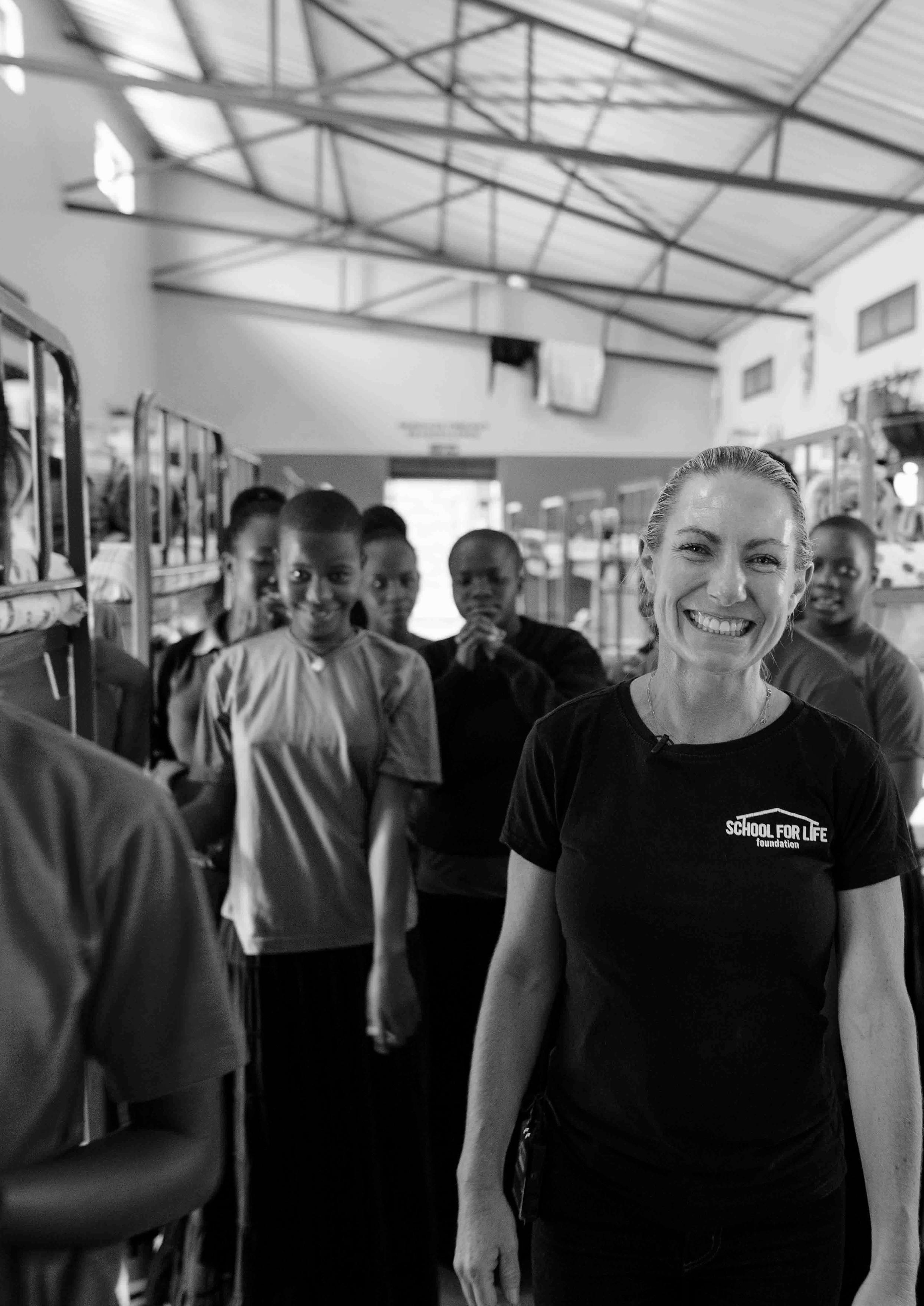
Education is a gift that can’t be taken away. It’s a fully sustainable way of giving back.
Annabelle Chauncy OAM
Founding Director and CEO,
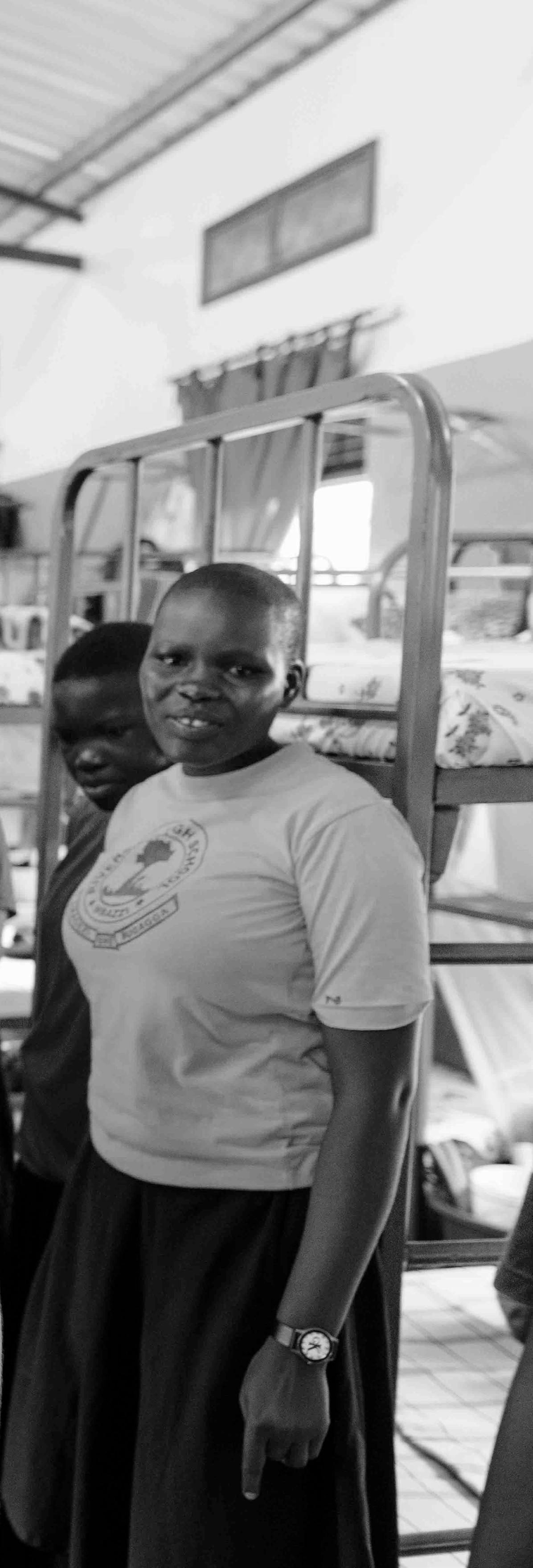
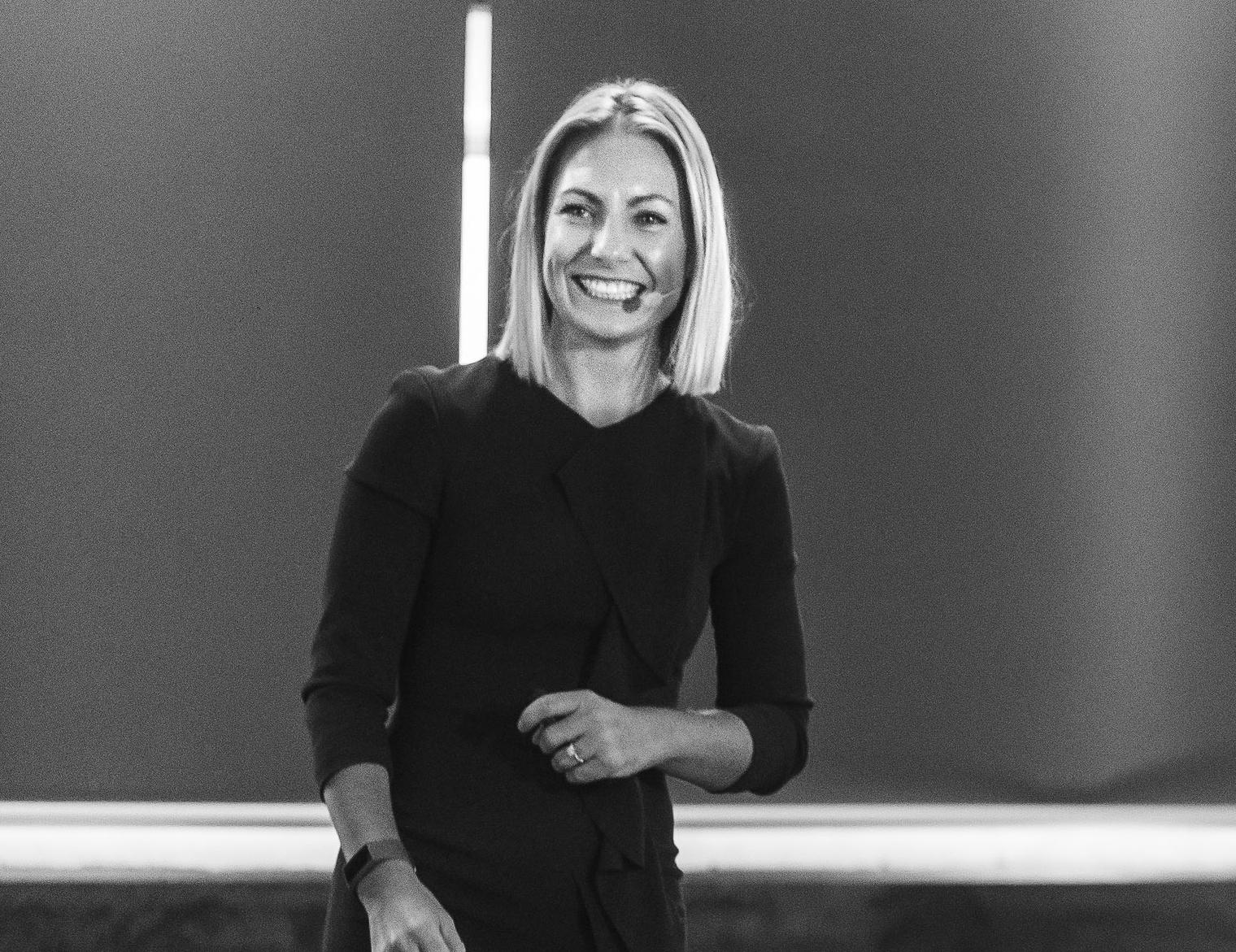
Annabelle Chauncy learned the value of education and service to others early on. Raised on a sheep and cattle farm in rural Australia, her primary school had 26 students, and her mother was her teacher. The tightknit community was committed to taking care of each other and that passion became ingrained.
“I was a weekly boarder at my high school, which was also very small,” Annabelle explains. “But it was a unique educational environment. We were measured 50% on academic performance and 50% on community service. I was able to learn about education in a more holistic way than just about academics and doing well in your grade.”
Annabelle volunteered wherever possible, including working with horses and ponies at her grandmother’s organisation, Riding for the Disabled, where children with disabilities engage in therapeutic horse-related activities.
“I just did things to make people’s lives a little bit happier and our community a better place.”
Community service ignited Annabelle’s desire to join the UN’s humanitarian efforts. She became fluent in French, studied law, and moved to Sydney for university. Her goal was to make a global impact but —
“I came from small communities where giving and service are such a big part of their fabric, and I felt like a number on a piece of paper. I wasn’t sure how I was going to use my skills to make a difference.”
Putting her university degree on hold, Annabelle signed up and went to teach English to children in Kenya. Within six weeks, civil war broke out and she was evacuated across the border into Uganda. The intense poverty mixed with the educational void prompted her to start a school to provide quality education, skills training, and empower communities out of economic despair. Annabelle was 20.
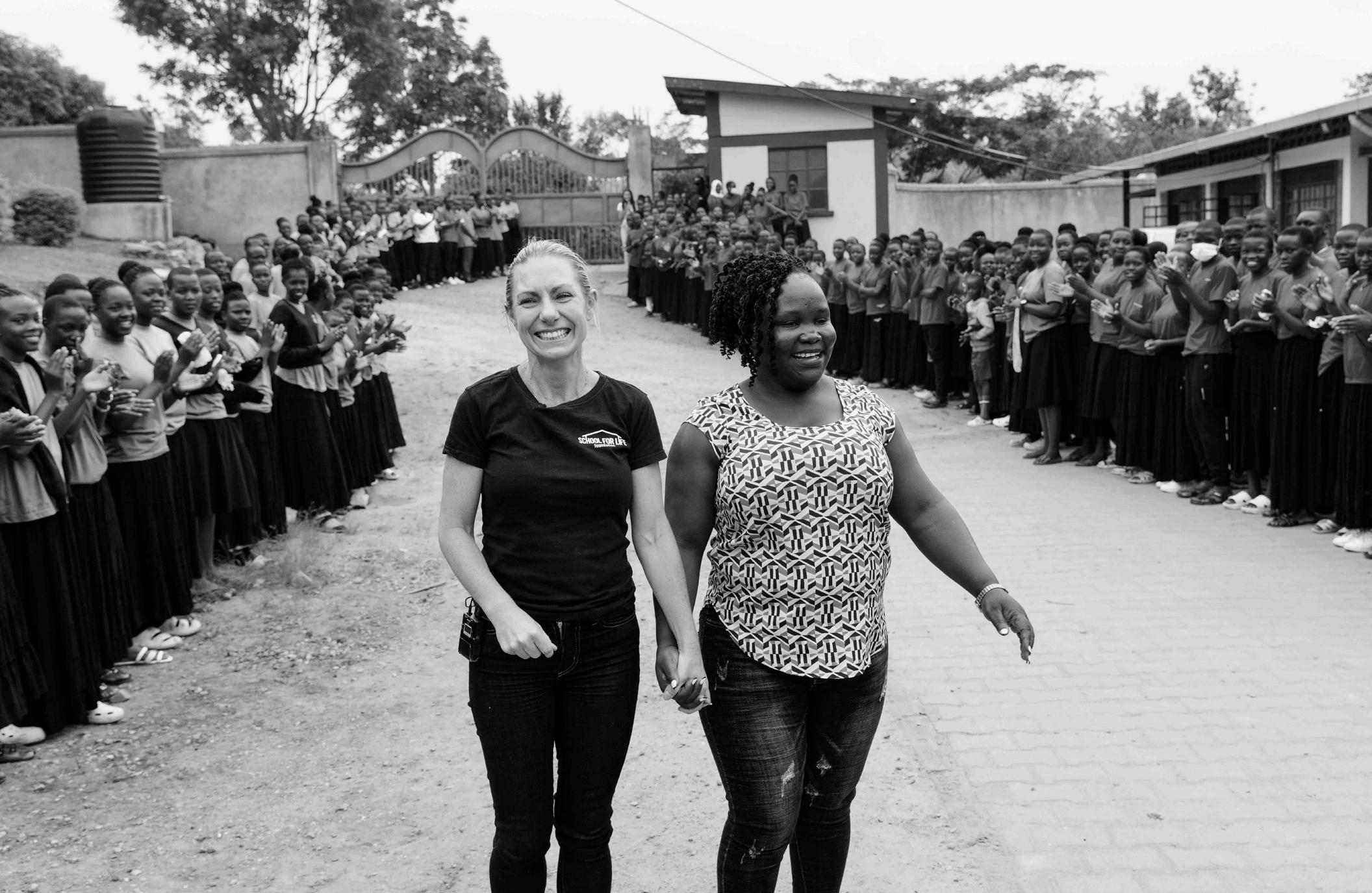
Not the first Westerner to promise education, Annabelle quickly learned what mattered most: get the community, local government, parents, and teachers involved.
“To truly be sustainable, you have to empower locals to lead the vision and drive it forward for themselves,” Annabelle says. “Unless the ambition comes from within, it’s not really going to be sticky.”
Everything was local, from the building materials to the workers to the teachers. Of course, there were hurdles such as Annabelle’s age and getting seed money from Australia — “They wondered who are these 20-yearolds who want to go build a school in a country that’s so far away?” — but she found a community willing to work with her.
“Ten years earlier, another Westerner promised them a school but never came back. Building trust was slow and we needed to make sure we brought them into every part of the process. From consultation to working with the groups of elders to naming the school to the construction.”
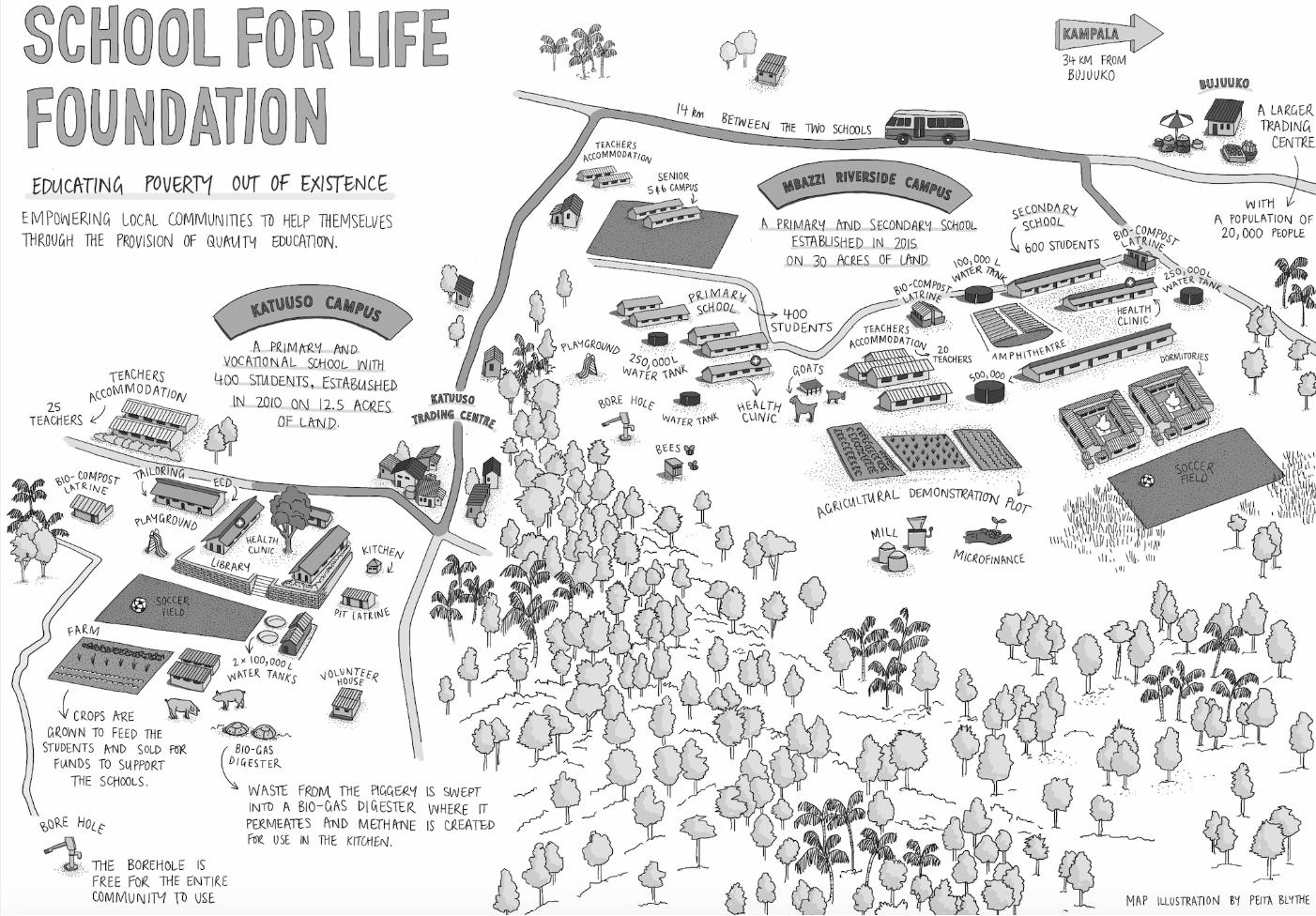

School for Life comprises two primary schools that feed into a larger secondary school. The name was chosen because it goes beyond academics. While offering the national curriculum of Uganda — it is registered by the Ministry of Education — the school also teaches the arts, skills such as how to grow mushrooms and how to start a farm, and provides counselling services, nutritious meals, and healthcare.
“All the things that set a child up for success to lift them out of poverty,” Annabelle explains.
Other keys to the success of the school program are involving the parents, supporting the professional development of staff, and carrying through that thread of community service through something called My Community, My Responsibility. Children do outreach to help the elderly and disabled, and on Green Day, they focus on environmental conservation. The first group of students recently completed their last year of high school and for the next 8 months, they will be volunteering in their local government school system to bolster and uplift the local community.
The 5-year goal is to have educated 10,000 children. As of today, they have empowered 4,500, but Annabelle doesn’t focus on the numbers.
“Everything we do is about doing it in a deep and sustainable way. I’m much more driven by that than I am by actual numbers.”
Annabelle believes the antidote to poverty is prosperity, and graduates are called “prosperity makers” because “they’re taking prosperity back to their homes and their communities.”
To achieve this goal, they equip the students with critical and creative thinking skills to be successful in whatever path they choose. Empowering the students, engaging and including the parents and local governments and community, and supporting the teachers and encouraging their continued growth and
professional development are all ways School for Life plans to eradicate poverty. It may seem a lofty goal, but Annabelle has a superpower that eliminates any doubt: true passion.
“I don’t think you can fake passion and I’ve been truly passionate about the work and the impact,” Annabelle says. “There are three key focuses, what I call ‘The 3 R’s’: Relationship building, Rigour in everything we do, and Real impact. If you fund us, we will deliver on our promise, and that’s something that we hope makes us rare.”
The desire is to one day go global with the School for Life model. Even now there are opportunities for parents from all over the world to bring their kids to visit the schools to see the work first hand through the travel4good initiative. Families immerse themselves in the program, gaining insight into the impact it has on those needing a simple opportunity to be all they can be.
These trips prompt incredible action — not just for the school, but in the lives of those who take them, proving something that sparked Annabelle’s journey long ago.
“You don’t have to build schools in Africa, but we all have the power to make a difference for our communities, for our families. Think about how you, as an individual, can make a difference and follow your heart. In giving we receive far more than we give, and my life’s been enriched in more ways than I can imagine by starting School for Life. Just take that first step and incorporate giving back and making a difference into your every day.”
Interested in funding a School for Life scholarship or traveling to see the schools firsthand? Visit the website and see all the activities and programs it has to offer.
Byline: F5 Editors
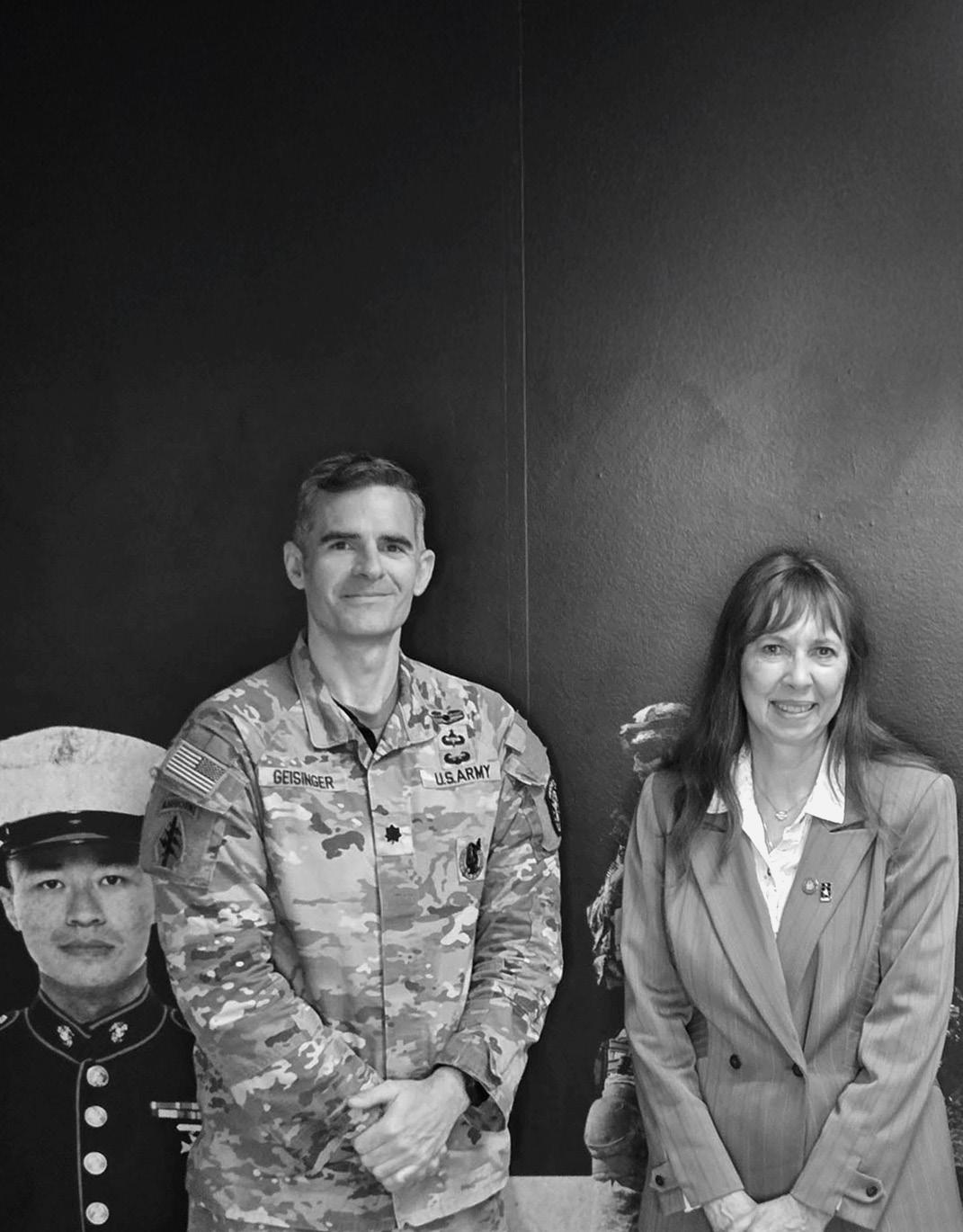
WOMEN DOING GREAT THINGS - TERRIE SUICA-REED
Abreastcancerdiagnosisandunexpectedstudentteaching assignmentleadtothefoundingofPennsylvania’sPhase4 LearningCenterandempoweringkidstofindtheirpaththrough customized,targetededucation.
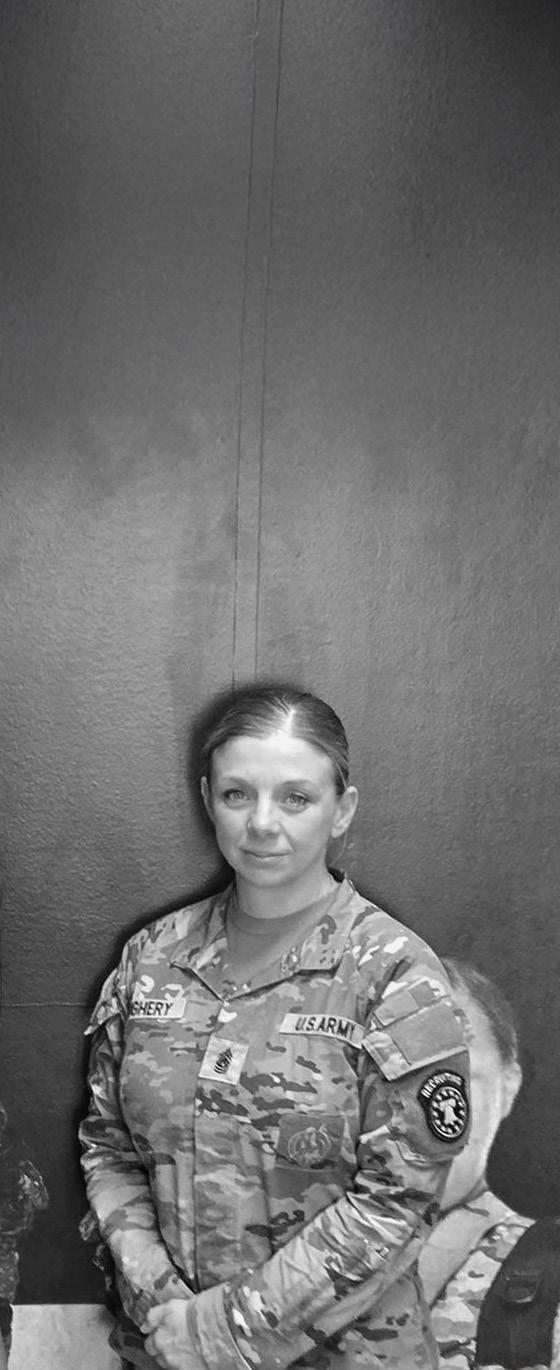
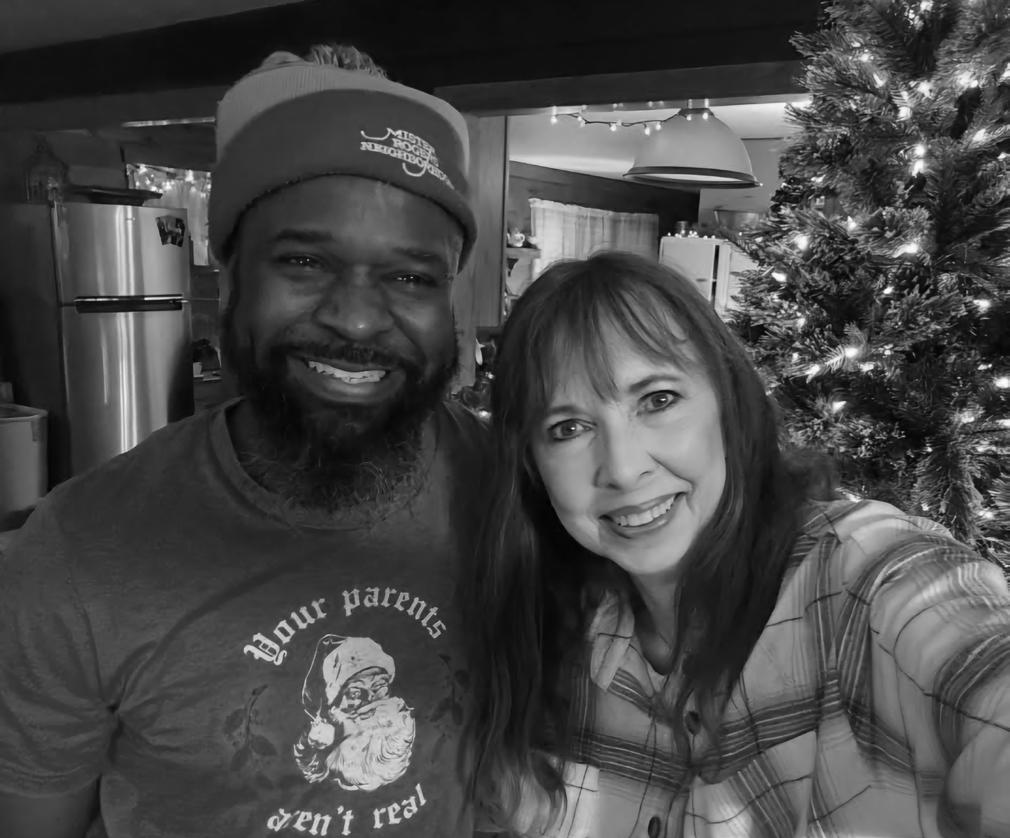
It’s about impacting and empowering. Believing in them before they can believe in themselves and saying, ‘I’ll be the proxy for you. I’ll believe in you until you get to that point because we know you have this endless potential and purpose.
Terrie Suica-Reed Founder, President, CEO, Phase 4 Learning Center, Inc.
In 1989, Terrie Suica-Reed discovered a lump in her breast. She was 32. Disconcerting, sure, but at 32, no big deal, right? When she told her soon-to-be husband Tom that evening, he agreed it was probably nothing but… “Get it checked out.” What followed was a whirlwind of operations, a death sentence, chemo then a “there’s this experimental drug trial, would you…?” She did and became the sole survivor of what has gone on to inform all breast cancer treatment advancements since.
At the time, Terrie was making good money as a controller for a German family-owned company in Pittsburgh. She was well-respected and about to marry the love of her life. The diagnosis came, she survived, and as the company moved back to Germany, they offered her a nice salary to go with them. She declined, however, and decided that she wanted to do more with her life with the second chance she was given, and went back to school to become a teacher.
Terrie had to fulfill her student teaching requirements to graduate and hoped for a high school or college assignment. What she got was student teaching 6th grade English at Harding Middle School.
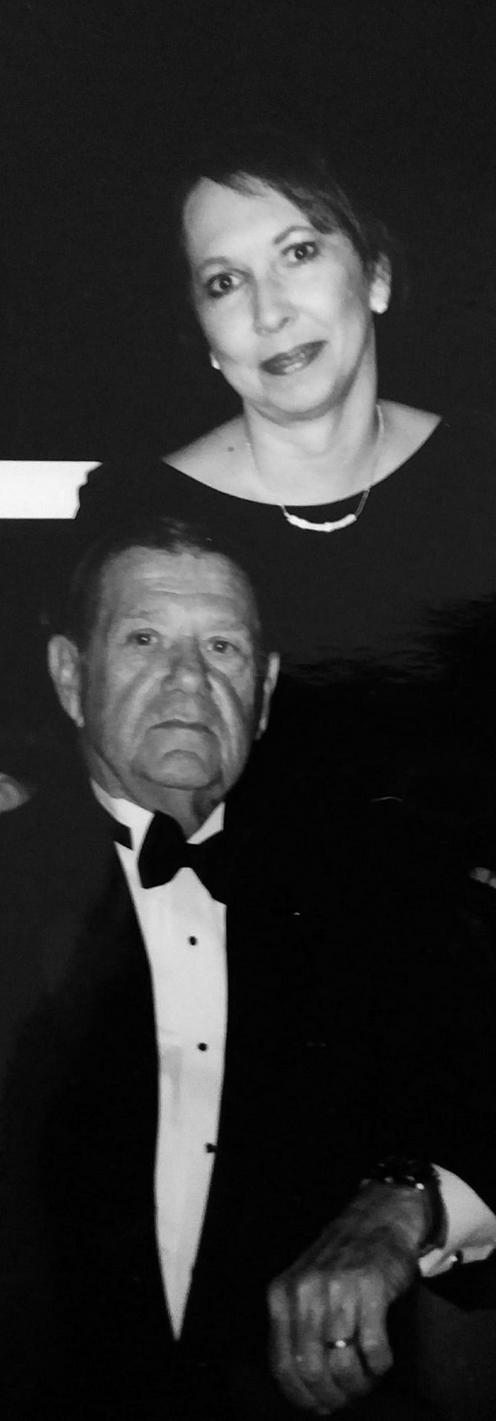
“I was in a very unruly classroom of 6th graders whose feet were way too big for their bodies and they were all over one another, and they could care less about what anybody had to say about mythology, for example.”
The class had six levels throughout the day with the lowest being the last class. Two weeks in, Merle Thompson showed up in the afternoon completely dishevelled with a smile that lit up the room.
“When he came into the classroom, it was like ‘Norm’ from Cheers. The whole class was excited to see him and flocked to him,” Terrie says.
From that first day, Merle was always in the hall because he wasn’t prepared for class. Finally, Terrie asked the teacher if she could tutor him. The teacher asked, “Why?” And Terrie explained he obviously needed it because he was always in the hall.
Merle Thompson wanted to learn but had no support. Terrie tutored him at his own pace, found what worked, and he thrived. She got involved in his life and learned about his personal struggles. She talked about him constantly to her husband Tom, ultimately introducing the two over pizza and a movie.
Tom fell in love with him too, telling her, “Now I can see why you talk about him all the time.”
By the end of the school year, Terrie was beloved by the kids. Although she left to teach at the local high school, she and Tom stayed in Merle’s life, bringing him to live with them at one point. She used the same tactics in her classroom that she did with Merle, seeing results and wondering if it could work on a grander scale for similar kids who were kicked to the curb and at risk.
She came up with the idea of starting her own school with one purpose — Provide quality education to any and every one on their terms, in their way.
By 2003, Phase 4 Learning Center opened one location with 6 students from one school district with one program.
Phase 4 adheres to the Pennsylvania State academic curriculum with the goal of helping students achieve their high school diploma. There is no age limit — “our oldest graduate was 68 years of age” – and when students graduate, they must commit to one of three tracks: employed in their career pathway, moving into higher education in some type of post-secondary training program, or choosing to serve in the military. The program assists with each path to set them up for success.
“Students do work at their own pace. They can prove mastery of the course and move more quickly, but if they need help, they can slow down.”
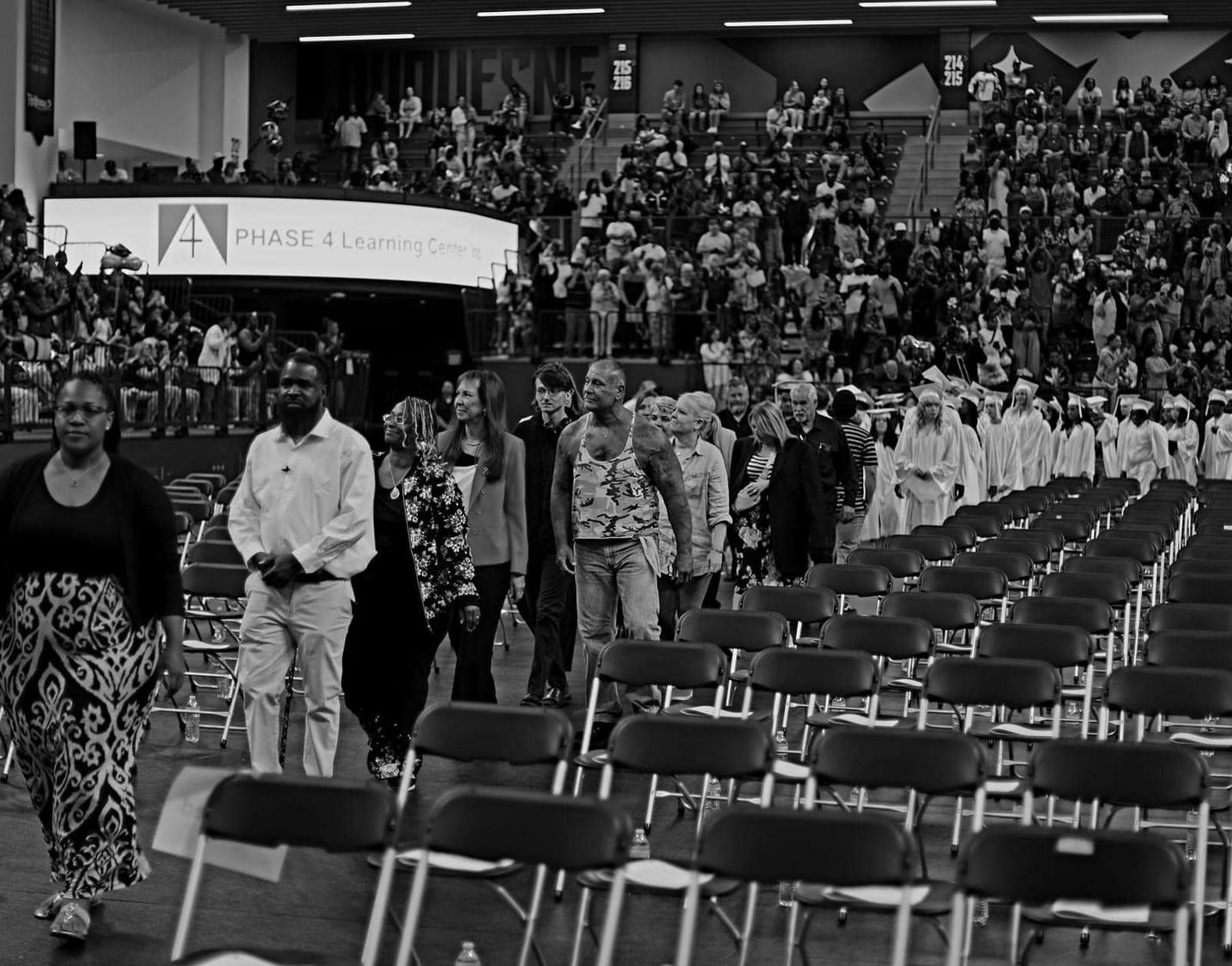
Today, Phase 4 services 1500 kids per year and their families, has five locations and 15 programs. They recently learned they are the largest private school in Pennsylvania for the 19th straight year, and their students won the Roku Change Your Change Maker series — a short-film documentary competition that features films created by high school students that are streamed to 99 million people worldwide — for the 3rd year in a row.
As the education program thrives, it begs the question of whether Terrie seeks to make a global impact.
“We’re connected with the international computer clubhouse — The Clubhouse Network — and the leading Best Buy Teen Tech Center, both of which are after-school programs in 20 different countries. We could easily provide academic programs for each worldwide and that’s a goal of mine,” Terrie hopes.
In exchange for empowering those too often overlooked and ignored, Phase 4 has one ask of all those who go through their program.
“Take what they’ve gained from us and go and share it with another person. Take it back home. Take it to your friend. Take it to the basketball court. Take it wherever. Just share a little bit of the good that they gained from us, because we do the same. We take what we learn from them, and we try to help other people. It’s the ‘pay it forward.’ It’s not a small thing.”
Terrie saw an educational void when she met Merle Thompson and chose to take a leap of faith and found Phase 4 Learning Center to enrich the lives of others because “I think if you’re a true entrepreneur what you want to do is make a difference and, hopefully, help others make life a little better.”
VISIT THE PHASE 4 LEARNING CENTER WEBSITE AND DISCOVER THE DIFFERENT OPPORTUNITIES FOR ENGAGEMENT, LEARNING, AND MEET MERLE THOMPSON, THE CATALYST BEHIND THIS UNIQUE EMPOWERMENT PROGRAM.
Byline: F5 Editors
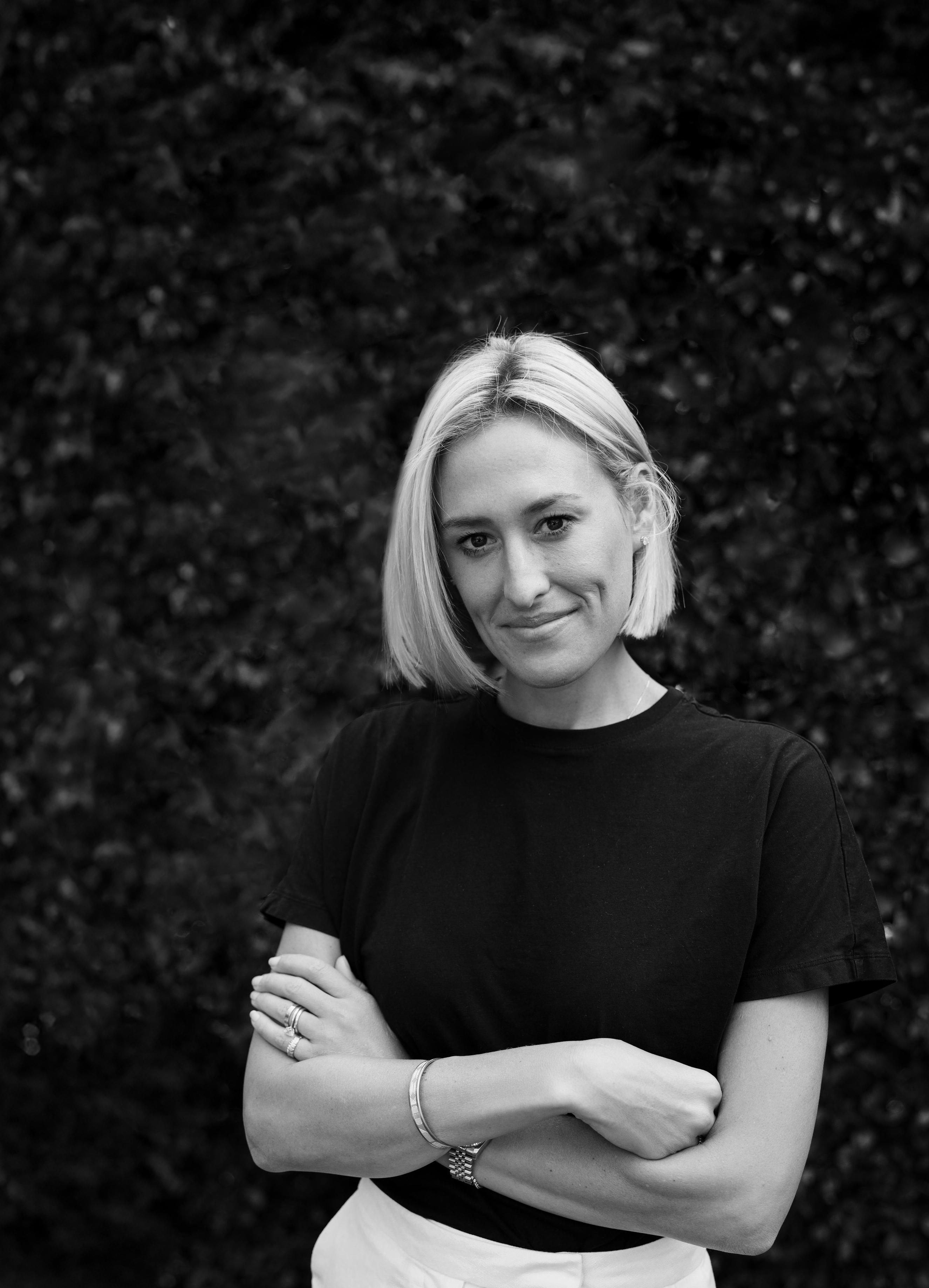
BREE KIRKHAM
Ourobjectivehasbeento deliverpersonal,business,and mindsetcontentacrossdiverse formatswhilegathering invaluablefeedbacktobuilda dynamicplatformthat empowerswomeninbusiness.”
I AM INSPIRED BY THE COLLECTIVE ENERGY AND TRANSFORMATIVE POWER!
We have quietly been working on the F5 App and our Summer Pilot. Everything we do at F5 is grounded in meticulous research. Our Theory of Change revealed the multifaceted challenges women face in raising funding — not merely securing the cheque, but also accessing influential networks and overcoming a confidence deficit.
In our quest to create generational change, we recognise the urgent need to address these critical gaps (along with funding, of course). With this vision, last year we embarked on developing the F5 App and, in January, launched a closed pilot to 50 brilliant women from Australia and Southeast Asia. Our objective has been to deliver personal, business, and mindset content across diverse formats while gathering invaluable feedback to build a dynamic platform that empowers women in business.
Though we are only halfway through this pilot journey, the insights from these past weeks have reaffirmed the power of bringing a product to market and engaging directly with the community and customer one wishes to serve.
Thanks to the incredible work behind the scenes and the enthusiastic engagement from our pilot participants, the F5 App is poised to become a beacon of possibility; one that inspires women everywhere to find their tribe, harness their unique strengths, and build a thriving future.
I won’t say much more other than to get excited! The F5 App comes to market in July. If you are a woman in business, be ready to join the movement to redefine what it means to be you.
Byline Bree Kirkham, COO, F5
